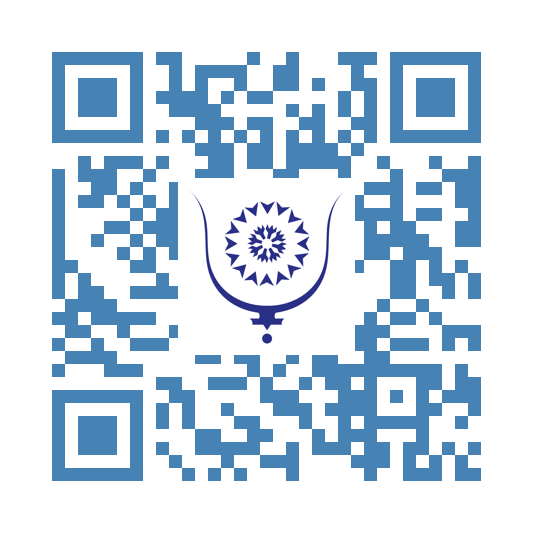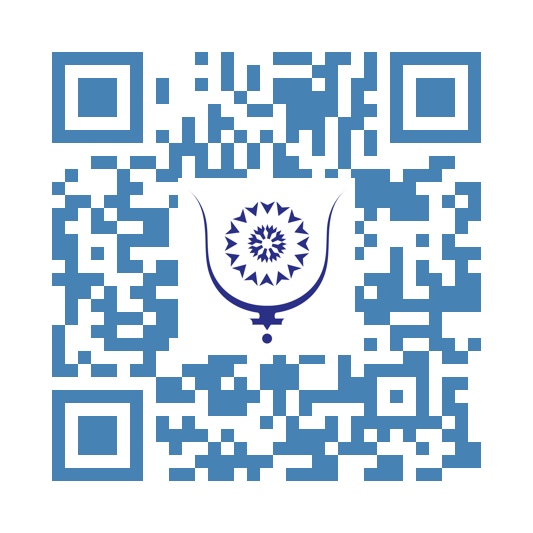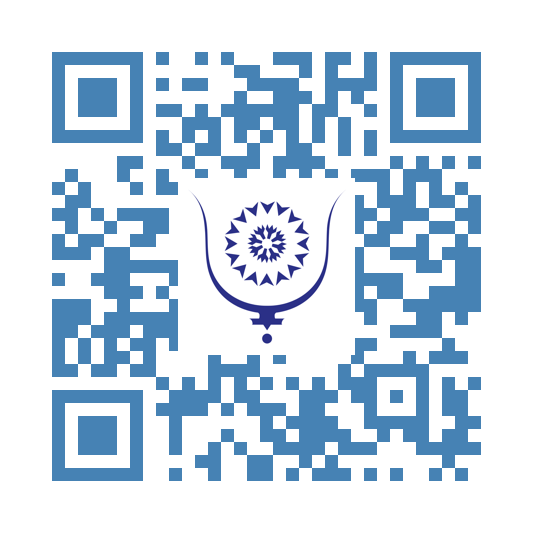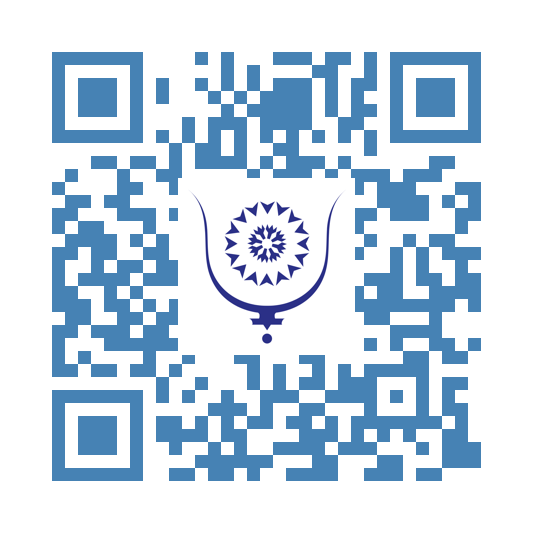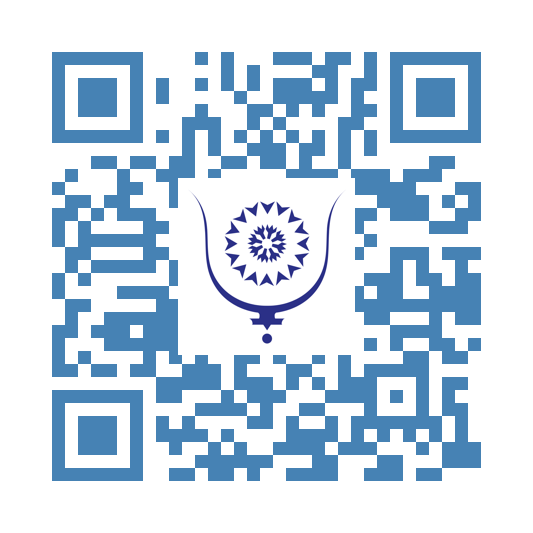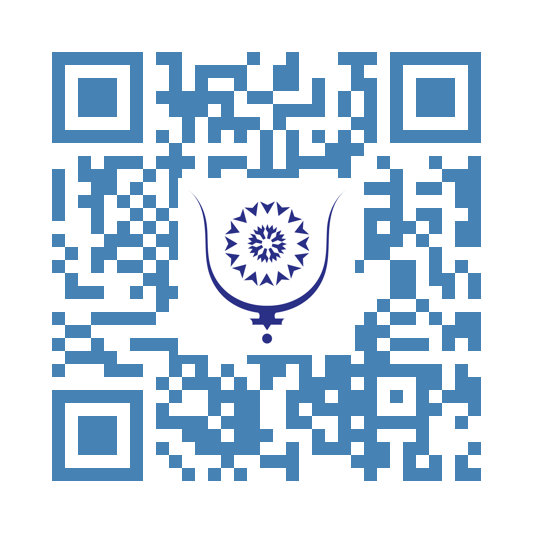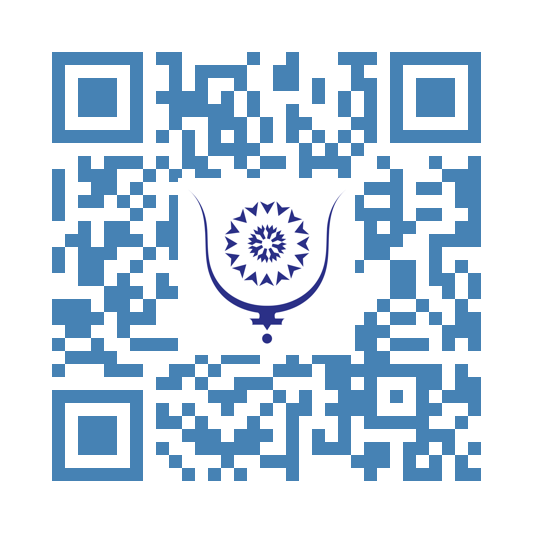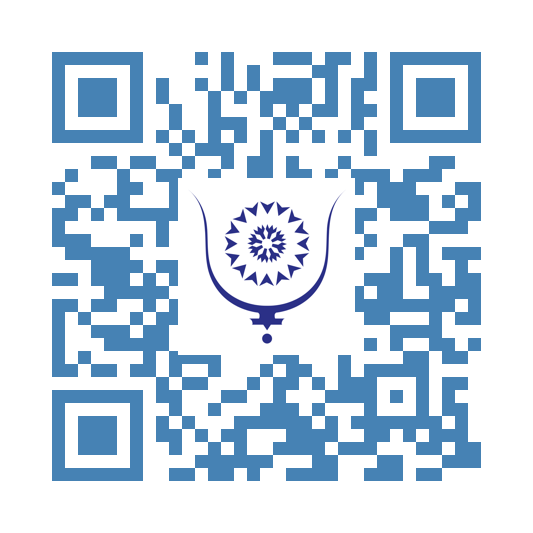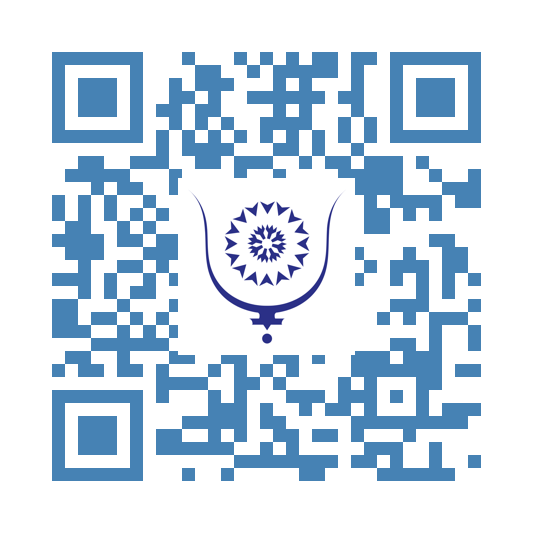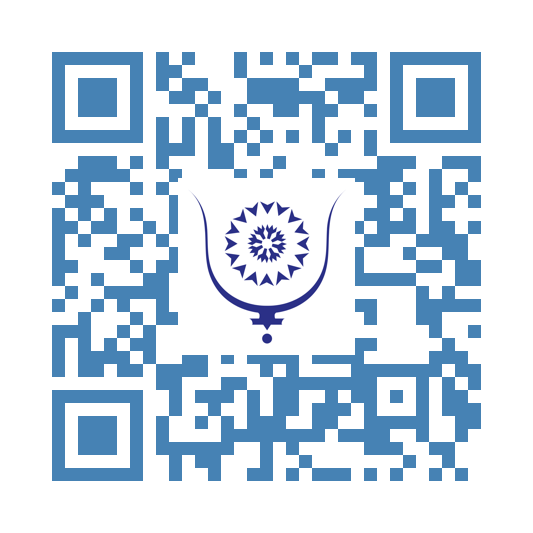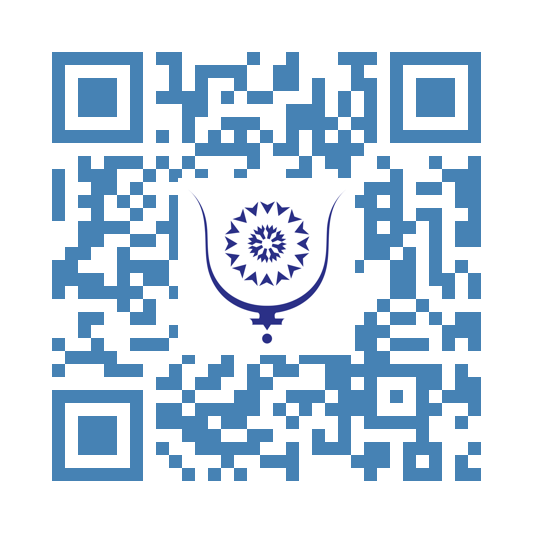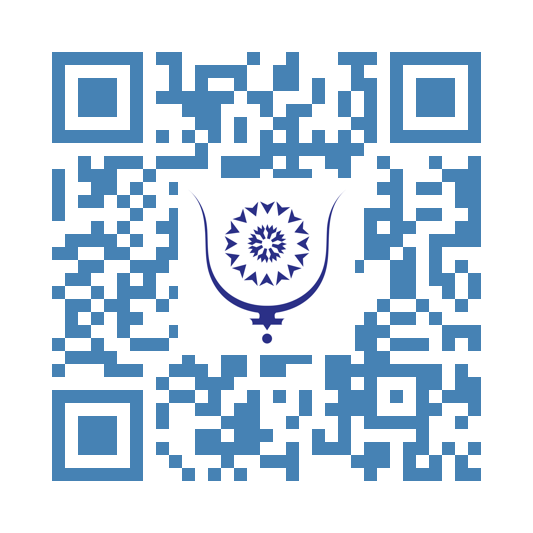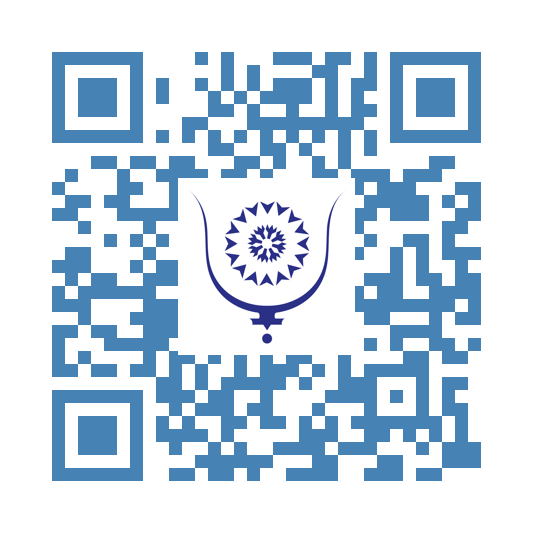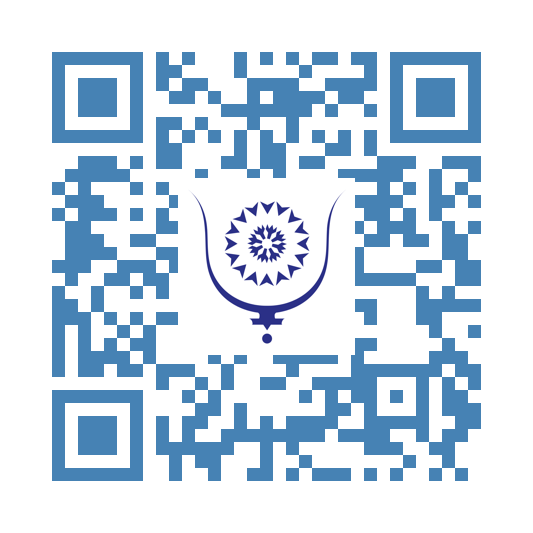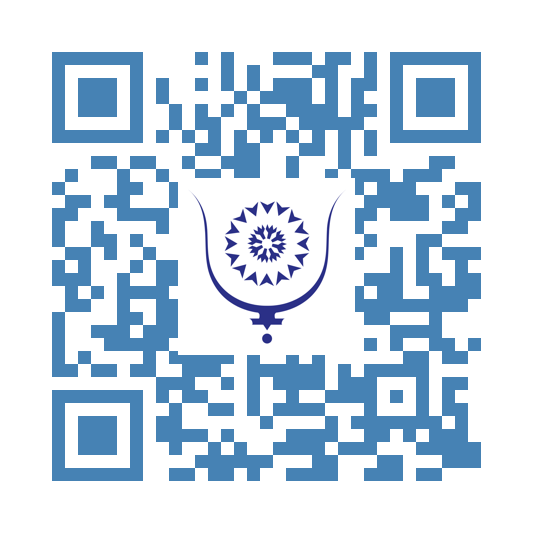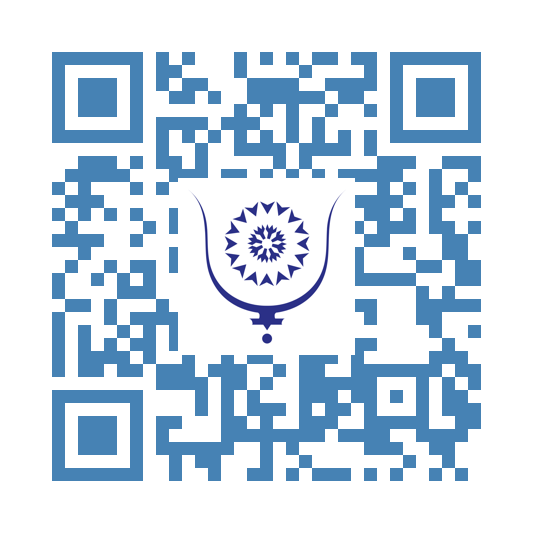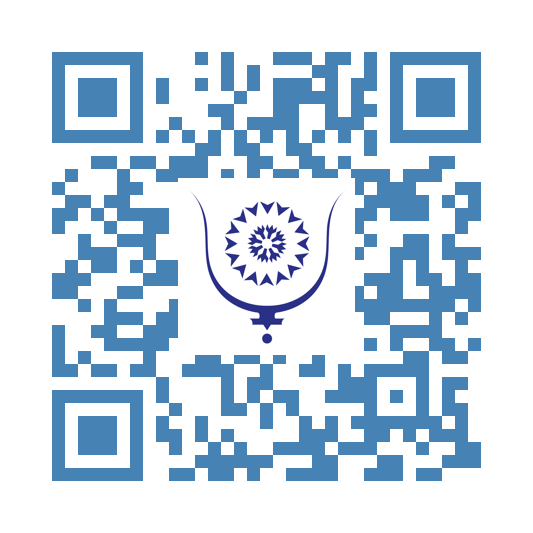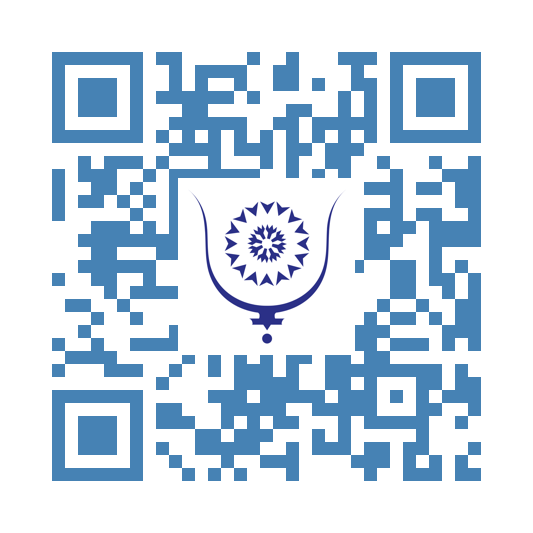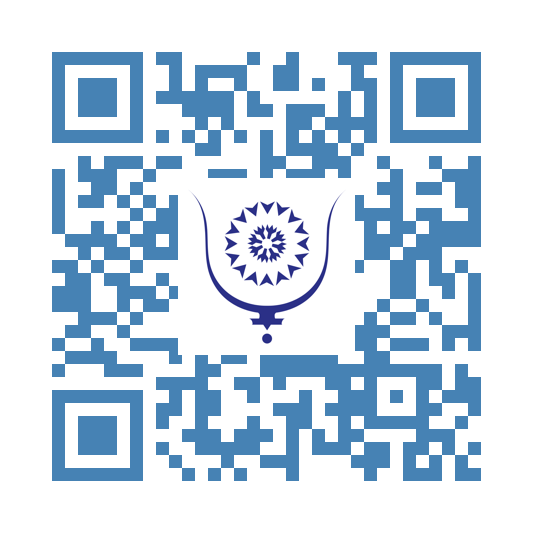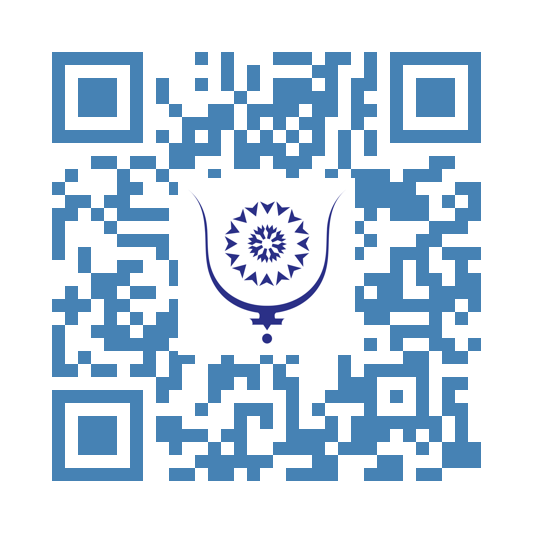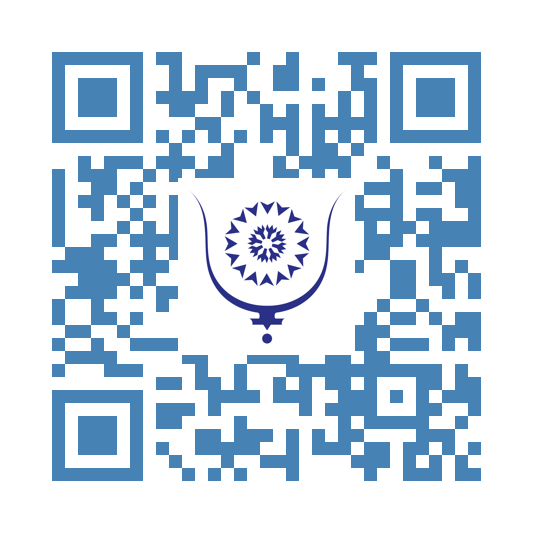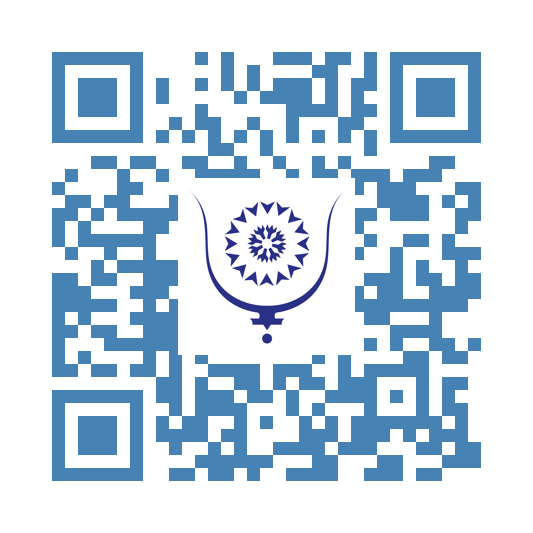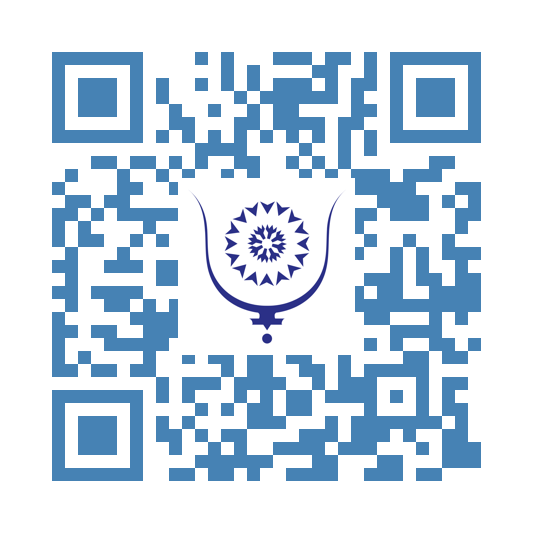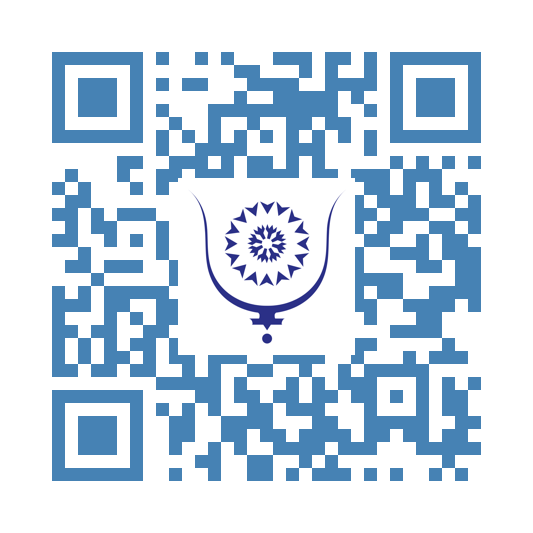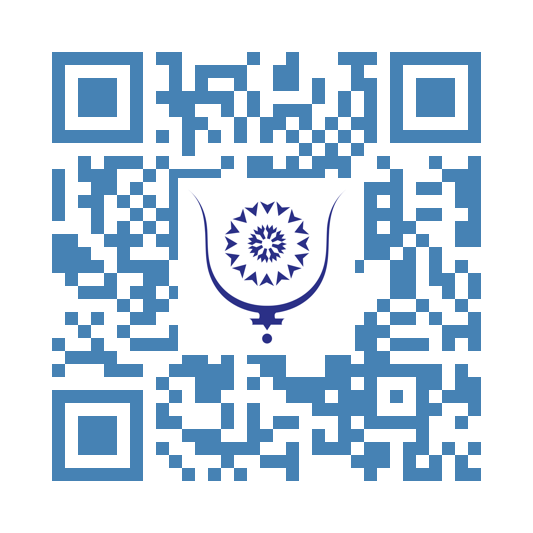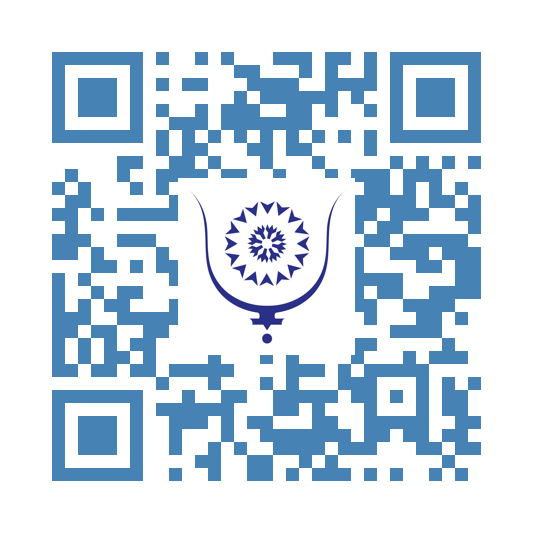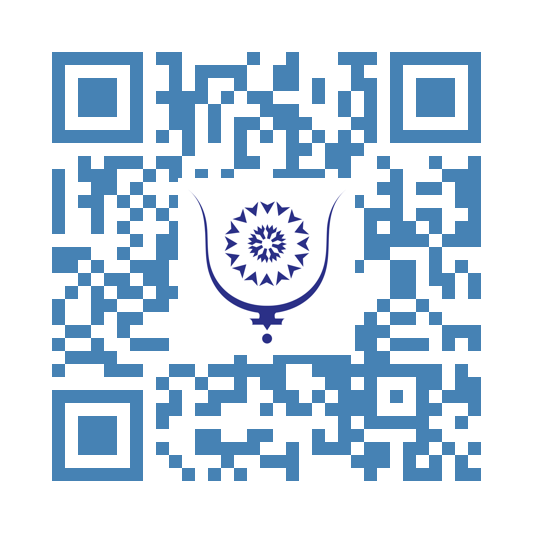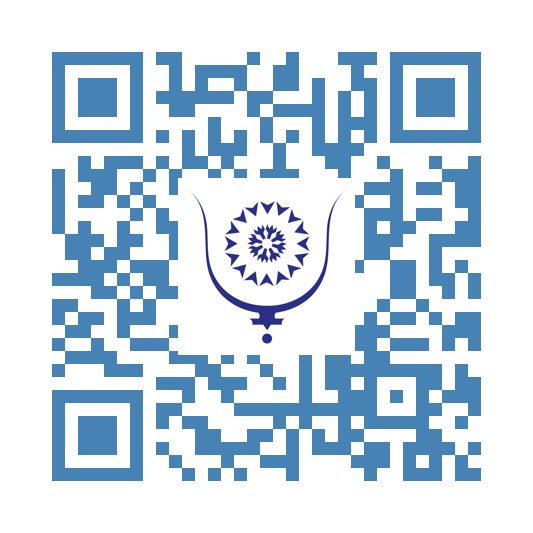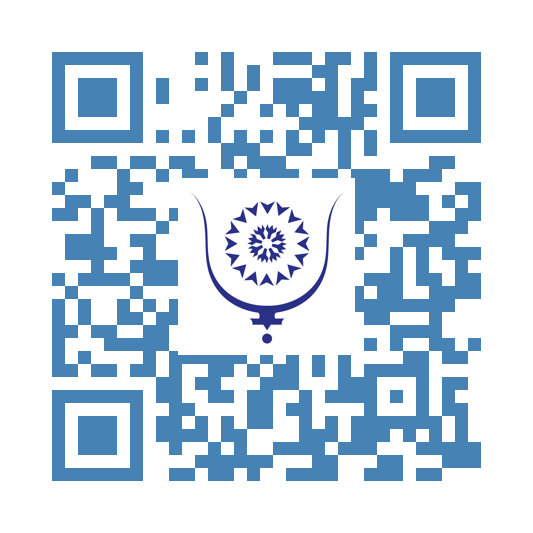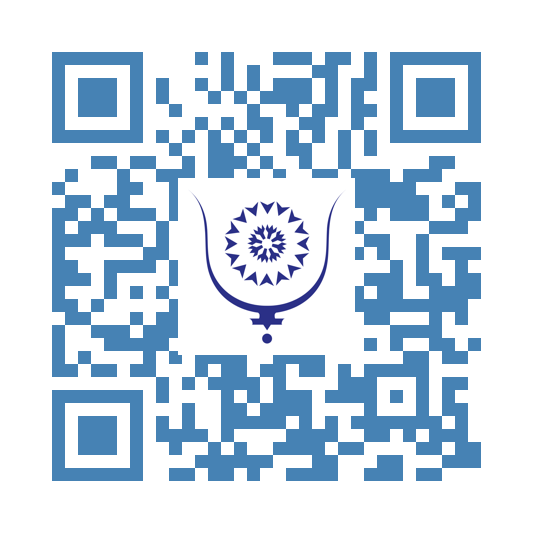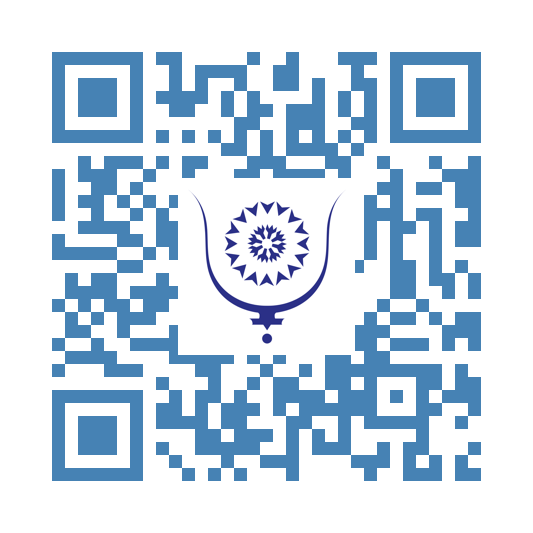Exclusive Access: Instant Feedback from Real Writers
Most communities talk. Ours delivers—personal critique, actionable advice, and direct connection with experienced writers, all waiting on Bluwr’s Discord.

Think Forward.
World Politics
Politics
History
Technology
Science
Art
Music
Society
Lifestyle
Business
Finance
Health
Sports
Poetry
Short Stories
Philosophy
Science Fiction
Romance
Realist
Fiction
Fantasy
Biography
Mystery
Western
Thriller
Other Worldly
If there is a situation requiring a quick, very quick response, it is that of the NEETs. These young people will not just disappear. As they get older, their problems, and therefore ours, will become increasingly difficult to manage and contain. The government must find sustainable solutions to reintegrate these young people who are neither employed nor in education or training, the famous NEET: Not in Employment, Education or Training.
An old path could prove surprisingly modern: le compagnonnage. Inherited from artisanal traditions, this form of direct apprenticeship, which has proven itself throughout our history, has not been abandoned elsewhere. In many European countries, workshop-based learning is a cornerstone of vocational training. The idea should inspire a new Moroccan model of integration and skills transmission, restoring meaning to learning through contact with crafts. Not so long ago, this was the case even for some modern trades: hairdressing, mechanics, and others.
It is time to rethink all this and also to look at what happens elsewhere in countries where childhood and its rights are perfectly protected, but where learning a trade in a workshop is not forbidden, in fact, quite the opposite.
In Switzerland or Germany, the so-called "dual" system combines theoretical teaching and practical experience in a company. It enables young people to acquire a recognized qualification while participating in the productive life of the country. It is, for example, the essential pillar of Swiss excellence in watchmaking.
This learning model values transmission and the accuracy of gestures, and helps keep manual and artisanal professions alive while reducing youth unemployment. Yet today, it is clear that many traditional Moroccan trades are in decline and risk disappearing due to a lack of Maâlems.
Le compagnonnage places the relationship between master and apprentice at the heart of the training, along with mobility between workshops and the creation of masterpieces in which the apprentice proudly participates and sees their efforts realized, with client appreciation being the sole measure of evaluation. Vocational schools cannot offer such an emotional connection to trades. Le compagnonnage values patience, excellence, and pride in one’s craft, values that resonate with Moroccan artisanal culture.
In Morocco, the situation is surprisingly paradoxical. Policies combating child labor have certainly made spectacular progress: the number of working minors has dropped by nearly 94% in twenty years. But the legislation, in its protective zeal, does not clearly distinguish illegal work from supervised apprenticeship.
The result is unequivocal: workshops where knowledge of wood, leather, or metal was once passed on are closing one after another, unable to welcome apprentices without breaking the law, while hundreds of thousands of young people are abandoned to the street and its risks.
This confusion between "exploitation" and "practical training" deprives hundreds of young people today of a genuine path to apprenticeship and weakens an entire sector of the national artisanal heritage. To quickly reclaim this historic force for absorbing NEETs, a revised, flexible legal framework is urgent. Once again, the lesson can come from Europe. International comparisons can offer valuable insight.
In Switzerland, vocational training relies on a true alliance between schools, businesses, and local authorities. Apprenticeship is valued as a path to excellence. Young people have the opportunity and good fortune to alternate between classes and workshop practice. They gain solid experience and obtain a recognized federal certificate. This system ensures rapid integration into the labor market while guaranteeing clear protection for minors and institutional recognition of the apprentice status. The result of this pragmatism is that manual and artisanal trades remain alive and respected.
In Germany, the dual model also combines theoretical training and work-based apprenticeship. It allows young people to enter the workforce early with protected and supervised status. The system is recognized for its ability to prevent youth unemployment and maintain a high level of technical skill, especially in industrial and artisanal trades.
Morocco, by contrast, still struggles to structure this link between apprenticeship and training. Artisanal apprenticeship remains largely informal, subject to restrictive legislation that tends to confuse formative supervision with illegal labor. While protection for minors is generally strong, it remains unclear when it comes to practical training. This results in unequal integration of young people depending on the sector, while many traditional trades that create wealth are now threatened with disappearance due to lack of successors.
The guiding philosophy of the necessary reform today should be the rehabilitation of the Maalem's role.
Fortunately, Morocco still has a priceless asset: its network of master artisans, or Maâlems, guardians of centuries-old traditions in ironwork, jewelry, carpentry, and pottery. Giving these masters a legal and formative place would be a first step toward creating a Moroccan compagnonnage, adapted to local realities and oriented towards modernity. This would require reforming child labor laws to distinguish structured apprenticeship from precarious work and creating institutional bridges between traditional crafts and formal vocational training programs.
This is a future path for young NEETs and these thousands of out-of-school Moroccan youth. Apprenticeship with a Maalem is not a step backward but a modern reinvention of the link between knowledge, work, and dignity. The Maâlems is a master, an educator, a transmitter of strong values.
And let us not forget that this is how Fès was an industrial city, how Marrakech has kept an authenticity giving it its unique charm, how Ouarzazate is Ouarzazate, and how Chefchaouen is Chefchaouen.
Framed by the state, recognized by institutions, and supported by local incentives, this model could help restore hope to a youth searching for meaning, while preserving the heritage trades that form Morocco’s cultural wealth, which sets it apart and makes it strong.
In every apprentice, there is the seed of a good citizen; in every apprentice lies a small or medium enterprise.
He thinks 6674
He thinks....
He thinks that in his nailed hands
I'm nothing but a toy.
I don’t think I’ll go back to him.
Today, everything has changed —
As if nothing had ever happened.
And with the innocence of angels from the skies
in the look in his eyes,
He tells me: I am the keeper of this place,
And that I am his one true love.
He brought me flowers.
How could I not accept them?
And all the naivety of youth
I found again in his gentle smile.
I no longer remember... the fire in your eyes.
How did I find myself in his arms?
I laid my head on his chest, proud,
Like a child returned to their father or mother.
Even my long-abandoned dresses
danced at his feet, all of them.
I forgave him… and asked how he had been.
And I cried for hours under his armpit.
And without thinking, I gave him my hand,
So it could sleep like a bird in his.
And I forgot all my hatred in a fraction of a second.
Who said I held a grudge against him?
How many times did I say I’d never return?
And yet I came back.
My return is wonderful.
To my first love.
Dr. Fouad Bouchareb
All rights reserved
Toulouse, May 29, 2025
Managing Science is not a numbers game 7200
More people in science does not necessarily mean better results: there is an equilibrium to find, a sweet spot.
There is a fundamental difference between technology, industry and science. In an industrial setting, production is mostly defined by how many units of production you have, and how much ressources are available for production. As long as input ressources are available, you can in theory scale production somewhat geometrically. Double the number of factories, double the output.
Science works differently. Historically groundbreaking scientific discoveries and theories have been made in times of small tight knit communities. The most famous example being the iconic photograph from the Fifth Solvay Conference in 1927, held in Brussels, often referred to as "the most intelligent photo of all time". All the great minds that defined modern physics from relativity to quantum mechanics fit in one single photograph.
In science, instruments are not the means of production, they are the tools used to assess theories. Doubling the money and the people does not imply doubling the output. Science is not about producing stuff it's about producing new ideas.
Science thrives when highly intelligent individuals, extremely passionate about a single topic, get to meet to exchange often and freely over a long period of time. A hyper focused kernel driven by a similar passion. Adding more people dilutes the potential of highly meaningful interactions. That's the first reason why more people can lead to less groundbreaking discoveries. Even if the constituents of that kernel exists, it can never crystallized and reach it's full potential. Too many people to talk to, too many papers to read and too many unaligned objectives.
This also promotes the apparition of dogmatism and "consensus thinking". When there are too many ideas to assess, it is tempting to go with what the majority thinks. However for science, freedom is more important than consensus. Consensus is a political tool used by human beings to govern themselves in matters of opinions. This is irrelevant to science because science is empirical. It doesn't matter how many people think something if it can be demonstrated to be false. Freedom of thought, on the other hand is the essential mechanism that keeps on generating new ideas and points of view. A necessary part of scientific development.
Reform, yes. Imitate, no. Morocco facing the parliamentary illusion... 6913
Everywhere it has been adopted, the parliamentary model shows its limits. In Europe, repeated political crises and short-lived governments multiply, fueling citizen disenchantment. In Israel, the succession of elections within a short period illustrates chronic instability. In Great Britain, the Brexit saga revealed the flaws of a system torn between electoral legitimacy and political fragmentation. Everywhere, the logic of fragile coalitions and opportunistic compromises has transformed parliamentarism into a machine of division and a conduit for populism. Wherever parliament fragments, crisis is assured: France is painfully experiencing this today.
Yet it is precisely when parliamentarism is faltering that some question the country’s institutional balance, mentioning it anachronistically as an adequate model! This observation sparks a recurring debate; some circles, seduced by an imported ideal, propose to further “parliamentarize” the political system, or even to further reduce the institutional role of the Sovereign. An alluring proposal at first glance, but dangerously disconnected from national, historical, sociological, and deeply political realities; the institutional balance in Morocco has been forged by history in coherence with geography and demographic data. Morocco is not like other countries, and its people even less so. It is a nation-state marked by a distinct particularism that stands out among many others in the region and beyond.
Since the 2011 Constitution, the country has advanced on a singular trajectory: that of a balanced constitutional monarchy, combining state stability and genuine political pluralism. This subtle articulation between the historical legitimacy of the Throne and the democratic legitimacy of other institutions has allowed the country to avoid the turbulences that have struck many states in the region, with disastrous consequences, it must be said.
Within this framework, the sovereign does not present himself as a partisan actor but as an institutional arbitrator guaranteeing national cohesion and the continuity of ambitious reforms undertaken. Without this moral and political authority of great subtlety, the country risks sinking into the same deadlocks experienced by other fractured parliamentary regimes torn apart by factional quarrels and personal ambitions.
Shifting the debate about systemic weaknesses and imperfections toward this subject dangerously distances one from the true issue: revitalizing and cleansing political life.
Calls for an increased transfer of prerogatives to Parliament often miss the real problem: the weakness of the party system. The ailment of Morocco’s political system does not stem from an excess of monarchical authority but from a deficit of credibility among other political actors. The monarchy has never prevented parties from showing competence, coherence, or boldness. Too often, they have preferred rhetoric over action, abandoning the ground and responsibility.
The challenge thus lies less in weakening royal power than in moralizing public life, enhancing parliamentary oversight, and demanding competence from elected officials. Democracy is measured not only by the formal distribution of powers but by the quality of their exercise and their impact on daily life and the course of history.
Since independence, Morocco's strength lies in an immutable constant: reform without rupture, modernization without renouncing its foundations. This model, sometimes criticized in the name of an imported idealism and an ideology now collapsed after having caused much harm, remains one of the few to reconcile stability, openness, and ambition.
Succumbing to institutional mimicry would be a strategic error in a global context where even great democracies doubt their own mechanisms. The Moroccan people, for the most part, know this. They are even deeply convinced of it. Some even go so far as to demand that all power be concentrated in the hands of the King; a way to loudly express their exasperation with the functioning of institutions they themselves elected. What a paradox it is to vote for people and then call on the King to rid us of them! Surprising, isn’t it? This is the particularism of this nation.
Morocco does not need a regime change but a political and moral awakening. The monarchy, guarantor of continuity, is not an obstacle to Moroccan democracy: it is its backbone. Unity around it is the singularity of this country that has known how to traverse history, faithful to itself. This model is unique and arouses envy of all kinds.
As Hassan II reminded us, democracy has no single definition. Each people must invent its own. This lesson remains strikingly relevant: Morocco will continue its own path, that of a thoughtful balance between authority and participation, tradition and modernity— a balance that is its strength and foundation of its stability.
Morocco advances, and even in great strides. As for the adventurers and political sorcerers’ apprentices: prisoners of their contradictions, illusions, and failures, they will end up stranded on the shores of history. They advance masked by slogans: the communist suddenly becomes a fervent defender of human rights, and the Islamist discovers a democratic vocation. They simply forget that history has already judged them and that models are plentiful, and Moroccans know it. They are not fooled. This is not about those who have already made their mea culpa and repented, of course, but about all the others.
Video Games and Aggression: How Trustworthy Is the Research? 6705
"The Effect of Video Game Competition and Violence on Aggressive Behavior" by Adachi and Willoughby (2011) is one of the most frequently cited studies in the literature on video game violence. Its credibility can be partially attributed to the fact that it is published by the American Psychological Association (APA), a highly reputable organization in the field of psychology.
The researchers picked video games with similar levels of difficulty and speed but varying degrees of violence and competitiveness. These four metrics were evaluated in a pilot study in which participants briefly played each game and rated them on a seven-point scale. The researchers then conducted two experiments:
- **Experiment 1:** The violent game chosen was Conan, an action game involving combat with swords and axes, while the nonviolent game was Fuel, a racing game. Both games were considered similarly competitive based on the pilot study. Participants were randomly assigned to play either Conan or Fuel. The experiment aimed to test whether violent content alone would lead to greater aggression after gameplay. The findings showed no significant differences in aggressive behavior between players of the violent and nonviolent games. However, the main concern with this finding is in its measure. The aggression was measured by having participants choose the amount and spiciness of hot sauce to give to another person who dislikes spicy food. A measure that does not fully capture the complexity of what aggressive behavior is.
- **Experiment 2:** They selected 4 games: Mortal Kombat vs DC Universe (Violent and competitive), Left 4 Dead 2 (Violent but less competitive), Fuel (Nonviolent and competitive), and Marble Blast Ultra (Nonviolent and less competitive). The researchers found that competitiveness in video games, rather than violent content, significantly increased "aggressive" behavior. They measured it by having participants compete in a reaction-time button-press game against an opponent. When a player lost a round, the winner had control over the intensity and duration of an unpleasant noise blast delivered to the loser. The participant’s choice of how loud and how long to set the noise blast served as a proxy for aggressive behavior. Blasting the noise could indicate other motivations besides aggression, such as opponent intimidation to win the game, compliance with experimental expectations, or could have to do with the impulse management of the participant. Once again, the measure fails to reflect the multifaceted nature of aggression.
Research papers like these shape the opinions of a significant portion of the public regarding the link between video games and violence, which raises the important question of how well such studies capture the true complexity of aggression and whether their findings should be featured in such reputable journals and directly influence public perception.
You are leaving Bluwr.
We cannot guarantee what's on the other side of this link:
The judge of love 6487
Oh you judge of love
Be merciful to me
Don't condemn me until you've listened to me
I am a victim as always
I swear it out loud
She's the one who makes me sing
And play tricks on me
As before and always
And pretends to be up
Mr. Judge Believe Me
And before you say
and to judge me with your law
Remember, yes remember
That you too were mistreated
By your lover many times
And you felt what I feel
Despite your good faith
So be merciful to me
And do me justice for once
Otherwise in your law I will lose my faith
I was what you are, you'll be what I am
Dr Bouchareb Fouad
June 4, 2024
All rights reserved
Demanding citizens, forgetful citizens: the other crisis of our society... 7037
The citizen facing himself: between demands and forgetfulness
In many contemporary societies and undoubtedly in ours as well, a strange trend is strengthening: that of the citizen who demands everything from the State but forgets to ask what he gives back in return. This stance of collective absolution, where responsibilities dissolve into criticism, nurtures a passive citizenship, often outraged but rarely engaged. Many blame the rulers while forgetting that it is we who voted for them and that not voting is in fact a vote for the majorities that are formed.
When something goes wrong: unemployment, insecurity, education, health, the first reaction is often to accuse the State. More benefits, more justice, more transparency are demanded. This is legitimate. But in this claim, it is rare for each person to question their own role: do we pay our taxes properly? Do we respect the laws? Do we truly participate in civic life or do we prefer to leave it to the "others"? A country is not built only by the decisions of those who govern but by the conscious participation of its citizens.
Public discourse often emphasizes rights: right to health, right to education, right to work, right to freedom of expression. But duties: civil, moral, and economic, are frequently forgotten. Yet, claiming a right without fulfilling a duty weakens the social contract. Everyday incivility, such as littering anywhere, cheating on taxes, circumventing rules, undermines society just as much as the major political failures we denounce. Rights are not won without fulfilling duties.
Many denounce corruption as if it came from above, like dirty rain falling on innocent citizens. But the truth is more disturbing: the corrupter and the corrupted often merge in the same person. The merchant who cheats, the driver who slips a bribe to avoid a fine, the parent who seeks favoritism for their child: all participate in the same malaise. To accuse the "system" without recognizing oneself as a part of that system is to refuse to grow. Corruption is internalized and only bothers when one is its victim or when it must be protested, indulging in the taste of populism and nihilism.
We peacefully, passively let ourselves be seduced by the simplistic discourse of populists. They play on anger, frustration, and fear. They provide ready-made scapegoats: the elites, foreigners, institutions. But very few listeners take the time to analyze, verify, and reason. Populism appeals because it relieves: it transforms reflection into emotion. Nihilism offers an even more dangerous pleasure: that of despair. To believe that all is lost, that all is lies, that nothing has meaning is to refuse the effort to think about reality and to participate in change.
Many have a short memory and do not see the progress made, often because they do not bother to compare. Previous generations experienced misery, lack of schools, rudimentary healthcare, and permanent insecurity. Today, despite difficulties, material comfort, infrastructure, and freedoms are incomparable. Looking back is not complacency: it is a duty of lucidity to measure the path traveled.
The era is one of protest without information. Our time is marked by hyper-reactivity. We contest before understanding, comment before knowing. Social networks amplify this impulse: we get outraged faster than we get informed. But an opinion not based on knowledge becomes noise, a nuisance, not a contribution. Criticism, to be legitimate, must be enlightened, supported, and verified.
A responsible citizen does not just complain. He acts, informs himself, engages, and acknowledges both progress and errors. Only under these conditions can a nation evolve without sinking into sterile complaining.
Did not John F. Kennedy say in his inauguration speech on January 20, 1961, his famous phrase, becoming both a personal and political signature: "Ask not what your country can do for you—ask what you can do for your country." This quote was meant to encourage Americans to first consider what they could bring to their country, not the other way around. The phrase highlights civic duty and personal responsibility within the nation framework and is perfectly transposable to us in these times.
Apparently, John Kennedy was actually inspired by an older phrase spoken by a school principal in his childhood, who would say about a school called alma mater: "The youth who loves his alma mater will always ask not 'What can she do for me?' but 'What can I do for her?'" Kennedy might have replaced "alma mater" with "country" to make this patriotic motto. It raises the question of how many school principals are capable of such reflection and commitment to inspire our youth and make them aware of their duties before talking to them about their rights.
Today, if the need is to formulate a new social pact to bring us all together around the same goal of moving forward and making our country even stronger, it is also appropriate to work on rephrasing a patriotic pact as it was the case at our independence or after the glorious Green March, recalling at every moment, with every breath, our motto Dieu, la Patrie, Le Roi. It is thus that all our demands will be heard, that our rights will be realized, that corruption will disappear, and that social peace will be forever established.
Palace of the Kasbah 7146
Malaga, Palace of the Kasbah
Each time I wander there,
a strange phenomenon occurs
it seems I can hear the murmur of another age,
an extraordinary idyll,
from a past not so distant,
suddenly extinguished,
leaving a feeling of the unfinished,
of an era that left its mark,
of which Arabs and Moors still speak,
and nearly every spirit recalls
those of noble souls
and proud Iberian Spaniards.
In the gardens, I seem to hear melodious songs,
of lovers and beloveds
sharing cups of wine,
pure juice of the vine,
and mugs of beer,
behind stone walls
as if it were yesterday
sole witnesses of a past they hold dear,
hidden from the envious eyes of pawns,
to the great dismay of spies and the curious.
Suddenly rises the voice of a singer,
sweet and marvelous,
healing the wounds of every broken heart
that no physician, however wise,
had ever managed to cure.
O Andalusia, land of a glorious past,
of wondrous tales and shining episodes!
The Palace of the Kasbah still stands proud,
rising high through time,
faithful to its noble heritage,
awaiting the resurrection of its Caliph
and his courtiers.
Dr. Fouad Bouchareb
The Palace of the Kasbah
Malaga, September 16, 2022
All rights reserved
And if taxation became the key to our solutions in response to the anger of young people in Morocco? 7430
At the end of September 2025, many young Moroccans protested everywhere to demand social justice, educational reforms, better access to healthcare, and the fight against corruption. This unprecedented movement, driven by Generation Z through the GenZ 212 collective, expressed deep distress in the face of precariousness, high unemployment reaching around 35% among 15-24 year olds, and a feeling of social injustice with millions of NEETs.
This was predictable: recent inflation rates, the widespread decline in purchasing power, the pressure on street vendors who were suddenly targeted for eradication, some hastily decided measures linked to the Africa Cup of Nations and the World Cup could not remain without reaction from the population, and it was the youth who carried it. Projects that were supposed to unite us have in fact divided us.
In response to this mobilization, everyone awaited attentively the speech of His Majesty King Mohammed VI on Friday, October 10, at the constitutional opening of the parliamentary session. It was the last speech before these parliamentarians. The next one in Parliament will be delivered in front of other parliamentarians of our choosing as well. We were all hanging on the Sovereign’s words, his tone, his gestures. The paternal serenity of the king reassured us from the first moments of his appearance.
In perfect continuity with the Throne speech, the Sovereign insisted on responsibility and dialogue within institutions. He emphasized the importance of unity, stability, transparency, and social justice, and recalled the need for urgent reforms both in perception and structure, to build a united and prosperous Morocco.
The line is drawn and the course specified: Morocco must become an emerging country and reach a GDP of 300 billion USD as soon as possible, benefiting the entire population and all regions of the country. The anger is perceived intelligently with serenity, and a clear response: based on major achievements, Morocco is embarking on a new era in its development, a more inclusive era that relies on the specificities and strengths of each region. The speech actually calls for a patriotic pact with the commitment of all. A pact in which projects do not collide but complement each other for the benefit of the people.
Thus, the parliamentary session is launched and will tackle the finance bill, and it is the responsibility of the elected representatives to debate it. In the current context and to respond to royal directives, deputies as well as the government must think outside the box and debate constructively, certainly partisan but in the interest of the whole nation.
In this context, taxation can become a more effective and better-adapted tool to the period we are going through and to each region. It must no longer be perceived or felt as a burden or merely a collection tool but as a strategic lever capable of supporting economic and social solutions. Too often reduced to tax collection to finance public spending, it can and must become an engine of growth, investment, and employment, particularly to meet the expectations of young people. It must become a lever for development and fairness.
Among other things, it will be necessary to question the progressive tax reform between 2023 and 2026, which is debated, particularly with the rise of the corporate tax rate (IS) for small and medium-sized enterprises (SMEs). For SMEs whose net taxable profit is less than or equal to 300,000 dirhams, the IS rate increased from 12.5% in 2023 to 17.5% in 2025, and will reach 20% in 2026. This reform aimed to adjust taxation while stimulating economic growth but raises questions about the real impact on SMEs and their capacity to invest and create jobs essential for Moroccan youth. It must be emphasized that SMEs create the most jobs in Morocco, just after the informal sector. The government, which wanted to create jobs, blocked this momentum, including by this poorly timed reform. On the contrary, SMEs which employ the most should benefit from significant tax deductions to help them grow.
Internationally, several countries show that lightened taxation favors competitiveness and attracts investments, such as Ireland with a general IS rate of 12.5%. The Moroccan fiscal framework must be readjusted to stimulate growth and strengthen social justice while ensuring sufficient public revenues.
The challenge in Morocco is to adopt taxation that supports economic recovery while responding to the youth's aspirations for more fairness. This requires joint commitment from the government and parliament to design a transparent, fair tax policy adapted to the reality of SMEs, informal entrepreneurs, and young workers. Taxation that leaves maximum purchasing power to citizens, thus stimulating the true engine of growth: domestic demand. A VAT of 20% does not do this.
Integrating informal activities through taxation adapted to their size would allow valuing these actors as genuine entrepreneurs in the making, thus contributing to the formalization of the economy without crushing their capacities. A street vendor is actually the bearer of an SME project. How many success stories have been forged from precarious activities? Certainly, all this must be organized and regulated, but how does a young person starting a small business disturb us? The space belongs to everyone, including youth launching their own ventures without bothering anyone. Banning them makes bitter avengers ready for anything, while we are unable to offer them alternatives.
In this period of social tensions and hopes for a better Morocco, taxation can become a powerful lever for economic transformation. It must be rethought not as a brake, but as a tool for collective emancipation. Deputies and ministers should read Ibn Khaldoun on this subject.
Making taxation a factor of redistribution through prosperity, serving citizens and especially youth, is a path to explore to build a fairer, stronger Morocco capable of meeting tomorrow’s challenges.
Moreover, promoting national successes in all fields, from entrepreneurship to sports to culture, is essential to nurture the pride and ambition of young Moroccans. The exemplary achievements of our compatriots should be mandatorily taught in schools to inspire curiosity, admiration, and serve as examples through work and innovation.
Love! 7519
Love!
(Inspired by Jalal Eddine Rumi)
Love is destiny.
We hardly ever choose the moment to love;
It happens one evening… or one morning.
It comes by pure chance,
Leaving you confused and dazed.
The day you expect it the least,
You never saw it coming from afar.
It strikes in the blink of an eye,
Without an appointment,
It makes you gentle,
It makes you lose your reason.
It makes you flee your home.
Like fire, it burns with passion.
Love at first sight is common—
Each will have their share, their portion.
Without logic…
Yet it’s beautiful, despite all we endure.
It’s a pure feeling,
When it is sincere.
It’s magic,
It’s fantastic.
Despite its pains and sorrows,
Its sleepless nights until dawn,
It is life’s elixir,
Ecstasy without end.
It comes to you as if by magic,
Lifting you away from everything,
Besieging you from everywhere,
Taking over your soul…
And driving you mad, sooner or later!
Dr. Fouad Bouchareb
El Médano / Tenerife
August 24, 2025
All rights reserved
[Short Stories #4 ] A Red Flower Among the Ice [2/3] 7552
The door creaked open softly, and she paused, turning back just long enough to catch his eyes, a fleeting moment charged with unspoken meaning. She watched him carefully, her expression a blend of surprise and gentle curiosity, then spoke with quiet tenderness, “What do you hold in your hands, Karl?”
He raised his small hand slowly, revealing a vivid red flower resting softly against his palm. “Look,” he said, his smile tender and warm, “it’s a beautiful red flower.” Lila reached out, her hands cupping the delicate bloom as if shielding a fragile flame, her warmth seeming to ignite the fiery petals.
Karl’s voice trembled a little when he said, “It’s for you.”
Lila lowered her head, her eyes searching his, heavy with a sadness too deep for words. “What’s wrong?” she whispered.
His gaze dropped to the floor, as though the weight of his next words could only be carried there. “The military… they’re sending me away, to the far north. For a whole year. And I can’t take you with me.”
Her voice wavered, trying to stay steady, but a soft sigh escaped. “Come, Karl. Let’s plant it in our garden.”
With quick steps, Lila led the way outside, carrying the flower gently in her hands. Karl followed behind, his steps slow and hesitant. They stopped in the center of the garden, where a bare patch of earth waited beneath the pale sunlight.
Kneeling, Lila loosened the cold soil with her fingers as carefully as if touching a newborn’s skin. She placed the flower into its new home and pressed the earth softly around its roots. Then, with a small watering can, she poured cool droplets like a quiet blessing, nurturing the flicker of life buried deep in the soil.
Karl stood still, watching her with quiet eyes. Then, with a faint smile, he said, “It looks even more beautiful now. You’ve given it new life.”
Brushing her fingertips across the shining petals, Lila whispered, “My flower and I will wait for you, no matter how long it takes.”
Karl’s promise was soft but certain. “I’ll come back as soon as I can.”
Later, the car door closed with a gentle thud. Karl climbed inside and began his journey northward, the world outside growing smaller with every mile. Lila watched until the car was nothing more than a fading speck on the horizon. Then she turned back, closing the door behind her.
Day after day, spring after spring, the roots of the red flower stretched deep into the earth, holding tightly to the soil, keeping the promise alive. The winters were harsh, cold biting against both flower and keeper. Though every effort was made to keep it alive, the warm hands that planted the blossom grew cold in time, but still the flower endured.
The Neighbor of the Valley 7244
The Neighbor of the Valley
(Inspired by the song of Fairouz — “Ya Jarat al-Wadi”)
O neighbor of the valley, O joy,
O turmoil of my soul,
Your memories and dreams haunt me still,
Calling me, claiming my whole.
In my dreams as in my waking mind,
Your love remains, ever near;
And the memories softly resound,
Echoes of a past still clear.
I passed again by the gardens,
So green, so full of life —
There where I once met you,
Upon that sunlit hill.
Faces and eyes smiled upon me,
And in their breath I sensed your scent.
My weary soul revived at once,
She who had mourned her fate
Since the day you went.
Never before had I known
The sweetness of a lover’s embrace,
Until the day I gently held you close —
You, the red-haired grace,
Whose supple form bent softly in my hands,
Like a slender branch swayed by the breeze,
And whose cheeks, out of modesty,
Blushed with tender unease.
The language of words fell silent then,
Yielding to the speech of eyes;
Mine spoke to yours
With the passion love implies.
The stars and the heavens, our only allies,
Bore witness to us before the skies.
And when night came, I held you again,
Caressed and kissed you
Until the breaking of dawn —
Before we drifted apart, forlorn.
Since that day, there has been no yesterday,
No tomorrow, no day after,
No time thereafter.
The flow of time has ceased forever,
And was condensed into that one day —
The day I basked in all your favor.
Dr Fouad Bouchareb
Rabat, October 11, 2025
All rights reserved
Techbio x Africa: Early Movers - part3 7338
Early Signs, Real Ventures
It's one thing to say the infrastructure and talent are here but the real test is whether it yields actual companies.
And the signs are already showing. A new class of TechBios is taking shape, raising money, and doing the first thing every good TechBio does:
… drum roll, you should know it by now…
Building proprietary datasets.
The support system is forming too. OneBio, a Cape Town venture studio, closed a $47M Series A to back founders at the biology–technology edge.
Villgro Africa in Nairobi has already incubated 40+ health and life science startups and unlocked $18M in follow-on capital. These are strides stimulate the Techbio ecosystem and in part, to close Africa's translation gap with venture tools.
And the startups coming out of this wave are telling. I thought I would share my personal pick here. Start-ups I can map on the playbook trajectory.
Yemaachi Biotech in Ghana raised $3M from YC, Tencent, and LoftyInc to build the world's most diverse cancer knowledge base, sequencing samples across the continent to power precision oncology. As founder Yaw Bediako put it:
"We're looking at trying to understand cancer in the African diaspora - African American, Black British, and continental Africans - the first initiative of its scale. You can't say you're studying a disease if you don't include the most diverse population on the planet, which is the Black population."
BioCertica in South Africa, backed by Pronexus and the Gates Foundation's I3 program with a $2.2M seed, runs consumer genetic tests but is really playing the long game of building the first African polygenic risk database.
And Bixbio, part of OneBio's portfolio and an Illumina Accelerator graduate, assembled the largest reference dataset ever from Southern Africa, nearly 400 high-quality genomes across eight ethno-linguistic groups.
Even newcomers like Pandora Biosciences are starting on the same path, building chronic disease datasets designed for drug discovery.
And just this summer, the signal got even stronger. In June 2025, Revna Biosciences, a Ghanaian precision medicine startup, announced a landmark partnership with AstraZeneca. Within months, EGFR (gene coding for cell growth protein) biomarker testing integrated into Ghanaian cancer centers, oncologists trained in precision protocols, and the rollout of one of AstraZeneca's targeted therapies for lung cancer patients.
For a sub-Saharan market that has historically had near-zero access to this kind of precision oncology, that's nothing short of historic.
As Revna's CEO Dr. Derrick Edem Akpalu put it:
"This collaboration exemplifies how a synergized biomedical ecosystem such as RevnaBio's can help address long-standing institutional voids that have limited access to advanced molecular diagnostics and targeted therapies in this region."
It's a textbook case of a TechBio going from data and diagnostics to being a direct bridge for global Pharma into Africa.
None of this is random. Data-first plays are the starting point of TechBio always.
In the West, consumer genomics followed the same arc: 23andMe built a database of 15M genomes, went bankrupt, and still got snapped up in 2025 by Regeneron for $256M because Pharma wanted the dataset.
Tempus, sitting on 20 petabytes of oncology data, signed a $160M licensing deal with Recursion to train AI models for biomarker discovery and patient stratification.
The lesson is obvious: even before a molecule is in sight, the data itself is valuable enough to Pharma. Africa's first TechBios are now running that playbook and they're doing it from the most diverse human dataset on the planet.
The Stakes for Africa x TechBio
Case Study: 54gene - The Right Start, The Wrong Turn
54gene was supposed to be Africa’s genomics moonshot. Founded in 2019 by Dr. Abasi Ene-Obong, the company set out to fix the glaring gap where less than 3% of global genomic data came from Africans despite the continent holding the greatest genetic diversity on earth. Backed by Y Combinator, Adjuvant Capital, and Cathay AfricInvest, it raised $45M across three rounds and quickly became the poster child for African TechBio.
The model at first was exactly what you’d expect from a good TechBio: start with the data. 54gene partnered with 10 of Nigeria’s largest hospitals, built a biobank that grew past 100,000 patient samples, and focused on high-value cohorts like cancer, cardiovascular disease, diabetes, and sickle cell.
This was the right first play: position as an enabler for hospitals and research centers, pile up proprietary datasets, and generate revenue through paid Pharma collaborations. In other words, service-led first, platform-led later — the same arc followed by U.S. genomics pioneers like 23andMe.
Then came COVID. 54gene pivoted into diagnostics, scaling mobile labs and at one point driving Nigeria’s daily testing capacity from 100 to over 1,000. Revenues spiked — over $20M from COVID testing — but the pivot also pulled the company away from its core playbook. Instead of doubling down on turning its biobank into translational insights with AI, it spun up Seven Rivers Labs, a costly diagnostics arm. The bets didn’t pay off.
By 2022, as COVID demand collapsed, 54gene was caught between a fading diagnostics business and a stalled genomics mission. Layoffs, valuation cuts, and boardroom fights followed. In 2023 the company shut down operations; by 2025, its assets, including the biobank of 100,000 Nigerian genomes were up for sale at just $3M, before a Lagos court froze the deal amid lawsuits between founder and investors.
The story matters because it shows how fragile the trajectory can be.
Imagine if instead of diagnostics, 54gene had invested its datasets into AI models to map dosage differences for African populations, identify new drug targets, or partner on stratified clinical trials. That’s the road from platform to assets, the road that makes a TechBio a unicorn.
Dr. Ene-Obong seems to agree. His new company, Syndicate Bio, is now doubling down on the same thesis but with AI built in from day one partnering on cancer genomics in Nigeria and aiming to turn Africa’s diversity into global drug discovery.
It’s the continuation of the playbook 54gene set in motion, but with the missing piece restored.
TechBio x Africa Manifesto: The Edge - part2 7107
In Africa The Bottleneck Was Always Here And Now There a Real drivers for change
Translation is now recognized as the great bottleneck of drug discovery worldwide. But in Africa, it has always been the bottleneck.
Not in developing drugs, but in applying them.
Most medicines were discovered and validated elsewhere, then imported with little understanding of how African populations would metabolize or respond to them. The result is a structural mismatch: Africa accounts for 18% of the global population and 20% of the disease burden, yet fewer than 3% of clinical trials take place on the continent, most of them concentrated in South Africa and Egypt.
This gap is not trivial. Drug absorption, distribution, metabolism, and excretion (the ADME framework) are heavily influenced by genetic variants, especially in liver enzymes like CYP-450, which remain poorly characterized in African populations.
In theory, Africa's extraordinary genetic diversity should have been a global advantage for understanding variability in drug safety and efficacy. In practice, it was ignored.
As Professor Kelly Chibale of the University of Cape Town has argued:
"If you really want to have confidence in a clinical trial, it must start in Africa. Why? If it works in Africa, there's a good chance it'll work somewhere else, because there is such huge genetic diversity."
Then came COVID-19. The pandemic was a turning point, mobilizing governmental, NGO, and international funding to build sequencing labs, train scientists, and set up data infrastructure.
In my opinion, the Africa Pathogen Genomics Initiative (Africa PGI) became emblematic of this shift.
The first 10,000 SARS-CoV-2 genomes from Africa took 375 days; the next 10,000 just 87 days; the following 10,000 only 24 days. Today, all 54 African countries have sequencing capacity, and African scientists identified two of the world's five variants of concern.
For the first time, Africa showed it could operate at global pace when given the tools.
These investments were catalytic and revealed what had long been latent:
Africa is not just a recipient of medicines but a potential engine of translational science.
The infrastructure layer, built with public and philanthropic support (like the Bill and Melinda Gates Foundation), is now enabling a broader ecosystem: regulatory frameworks like the Africa CDC and the African Medicines Agency, scientific hubs such as H3D in Cape Town, and new hardware capacity supported by corporates like Thermo Fisher's Centre for Innovative Research in South Africa.
From here, the snowball is rolling. What began with genomics is already extending across the translational stack. In Ghana, new medicinal chemistry capacity has positioned the country as only the second on the continent (after South Africa) able to run early-stage compound design, linked into the pan-African Drug Discovery Accelerator.
This is big, because the continent can now de-risk potential assets.
Pharma is of course watching closely. Roche's African Genomics Program is sequencing tens of thousands of African genomes through local biobanks. Sanofi's partnership with DNDi shows how compounds de-risked in Africa can enter global pipelines.
And demographics strengthen the logic: Africa's population is set to nearly double by 2050, while non-communicable diseases like diabetes, cardiovascular disease, and cancer will become leading causes of death by 2030 which is the same conditions driving Pharma pipelines worldwide.
The Continent Is Full Of Bright Tech Minds
But data infrastructure alone is not enough; translation also depends on whether there is talent capable of making sense of the data.
COVID revealed this too: it was an African-born (Tunisia) AI company, InstaDeep, that helped BioNTech build the Early Warning System able to flag >90% of WHO-designated SARS-CoV-2 variants an average of two months before their official classification.
The company had already been working with BioNTech on personalized cancer vaccines, and post-acquisition it continues to run as an independent AI lab powering BioNTech's drug discovery, improving AlphaFold-like protein folding in immunology to designing next-generation mRNA cancer vaccines.
The $700 million acquisition in 2023 was not only the largest AI deal outside the U.S. at the time, but also a watershed moment for the continent. As co-founder Karim Beguir put it in a recent podcast interview:
"our initial motive was to prove that young Tunisians, young Africans could innovate and compete at the highest level"
The significance goes beyond one company.
It validated Africa's AI talent density, which is being built from the ground up through grassroots, community-led efforts. Initiatives like Masakhane, a volunteer-driven movement advancing natural language processing for African languages, or Deep Learning Indaba, cited globally as a model for how to mobilize a continent around machine learning, are emblematic of this bottom-up energy.
I saw it myself at Applied Machine Learning Days Africa 2024 in Nairobi, where more than 3,000 participants gathered across three days mostly researchers, innovators, and students taking responsibility for local problems and showing how AI can answer them.
This effort-led culture is now being matched with hardware too infrastructure. Microsoft has launched its first Azure cloud region in South Africa, enabling GPU-grade compute to stay on the continent, while Nvidia and Cassava are building an AI factory in Johannesburg, with expansions planned for Kenya, Egypt, Morocco, and Nigeria.
You are leaving Bluwr.
We cannot guarantee what's on the other side of this link:
His Majesty King Mohammed VI: A Style Rooted in Responsibility, Justice, and Development for All 7328
Faithful to the line and logic he has established since the first day of his reign, His Majesty King Mohammed VI has once again confirmed his style. “Style is the man himself,” said Buffon in his famous speech at the French Academy in 1753. By this phrase, Buffon meant that style reflects the personality, thought, and sensitivity of the one who writes or speaks. In other words, the way ideas are expressed is as valuable as the ideas themselves, because it reveals, in a noble sense, what the man truly is: his character, rigor, taste, and intelligence.
This reflection came to me from the very first steps of His Majesty as he descended from his car. His step is firm and his gait serene. He heads towards what represents a strong symbol of modern Morocco: the Parliament. The place where once a year the royal institution, the representatives elected by the people, and the government meet. An annual meeting that serves as a powerful symbol of the functioning and solidity of the country, just as Moroccans wished in 2011.
All the country’s vital forces are there. His Majesty greets those present, all dressed in white, a symbol of purity. They scrutinize his gestures and hang on his words, their breaths low or heavy. The moment is serious. Eyes lower. Ears try to catch every word. Minds are focused.
From the first words spoken, Buffon’s maxim is reversed: “Man is style.” The aphorism opens up another field of interpretation, perhaps more modern: style also shapes the man through education, culture, elegance in language and appearance. This is what was offered to us. His Majesty King Mohammed VI holds a fundamental conviction: institutions. Everything must happen within institutions and come only through institutions. On this October 10th, he reiterated this without ambiguity and with no roundabout phrasing. The words were finely chosen, but the speech was direct.
Five key words will resonate beneath the beautiful dome. They will swirl above the heads of our valiant deputies and ministers throughout a full legislature:
1. Responsibility: His Majesty the King insisted on the seriousness and sense of duty of parliamentarians and the government in the final legislative year, emphasizing the necessity to act with integrity and efficiency in the service of the homeland.
2. Social Justice: A reaffirmed priority to fight inequalities and guarantee fair living conditions for all Moroccans, in line with national economic projects.
3. Reforms: A call to complete and accelerate ongoing structural reforms to consolidate the Kingdom’s democratic and socio-economic achievements. This is a key message of the speech.
4. Unity: The Sovereign launched an appeal for unity and the mobilization of all energies to defend the higher interest of the Nation and strengthen social cohesion.
5. Transparency: The promotion of transparency and citizen communication around public initiatives is highlighted as a key factor for trust and good governance.
The royal speech of October 10, 2025, delivered by His Majesty King Mohammed VI before the Moroccan Parliament, marked a turning point full of hope and commitment for the final legislative year. The Sovereign strongly recalled the importance of “seriousness and sense of duty for the Nation’s representatives,” calling to “complete ongoing reforms, accelerate project implementation, and remain vigilant in defending citizen causes, while prioritizing the general interest.”
One of the key elements of the speech is the undeniable coherence between economic ambitions and social programs. The Sovereign emphasized that there could be no contradiction between these two fundamental dimensions, which must imperatively “converge to improve the living conditions of all Moroccans and ensure balanced territorial development.” This vision underscores the royal commitment to build a Morocco where economic growth rhymes with social justice.
His Majesty also insisted on the need for increased territorial justice, calling for integrated policies targeting the most fragile regions, such as mountainous areas, oases, or expanding rural centers. This approach aims to “facilitate access to services and stimulate local development,” while emphasizing “the importance of sustainable coastal management,” hinting at an ecological dimension and the possible threat of industries. These measures reflect a strong will for equity and territorial solidarity.
In a spirit of unity, the Sovereign made a vigorous appeal for the mobilization of all actors, urging deputies and institutions to “mobilize all their energies in the supreme interest of the Nation” and to promote “transparency and citizen communication around public initiatives.” Facing the challenges, this unity is presented as a necessary force to support reforms and ensure the country’s sustainable progress.
The speech fits a positive logic of institutional continuity, rigor, and collective ambition, making Morocco a “fairer, more modern and solidarity-based country.” Despite a national context marked by social movements, the royal message remains focused on constructive dialogue, fighting inequalities, and trusting institutions.
This speech is thus a clear roadmap for a Morocco progressing with responsibility and justice, driven by an ambitious vision for a shared future. It confirms the style of a monarch adored by a people aware that everything must happen within institutions, in accordance with the constitution desired by the people’s will in 2011.
Faithful to his convictions and his supreme mission as Commander of the Faithful, he recalls: “Whoever does the weight of an atom of good will see it, and whoever does the weight of an atom of evil will see it.” (Surah Az-Zalzala, verses 7 and 8). Az-Zalzala means “the great earthquake.” These verses express that nothing escapes divine justice: every act, no matter how small, will be accounted for on Judgment Day. The Sovereign’s choice is not accidental. Firmness is present. Isn’t he here making an extrapolation beyond the circumstance, in the most solemn context, to remind everyone of the imperative accountability and the firmness awaiting the corrupt and the deviants?
These were the last words of His Majesty before this parliament, before concluding, and they are heavy, very heavy with meaning. The Monarch speaks little but says everything clearly and calmly.
That is his style.
Techbios x Africa : The manifesto part 1 6943
Closer to Humans: The Next Big Opportunity in TechBio:
Hitting Eroom's law in translating assets to clinics
If Moore's law promises exponential gains from technology, Eroom's law (Moore spelled backwards) reminds us that drug discovery has stubbornly resisted that curve. For decades, the cost of bringing a new drug to market has roughly doubled every nine years, even as compute and data scaled exponentially. AI-driven TechBios were supposed to break this trend and accelerate discovery, lower costs, and flood the pipeline with new medicines. In its early day's, Recursion was going with something like a 100 drugs in 10 years.
And to some extent, they have delivered. Programs from Insilico or Recursion show how AI can compress preclinical timelines from five years down to 18–30 months. Costs are lower, throughput is higher, and in silico tools have expanded the space of molecules Pharma can explore.
But reality is that most AI-first drugs are still aimed at well-known targets, and once they reach the clinic, they face the same bottlenecks as traditionally developed drugs. Phase II proof-of-concept success rates hover at ~40%, unchanged.
Back to Eroom's law in action, the bottleneck has shifted downstream. The graph from speed invest tells the story nicely.
Early discovery (target validation, compound screening, lead optimization) accounts for ~25% of costs, the bulk of time and money is lost in Phase II and Phase III, where failure rates spike and costs per molecule can exceed 20–25% of the total.
Functional Data Is the Missing Piece
Why? Because our translational models are still inadequate proxies for human biology. Drugs fail not because they weren't optimized enough in silico, but because they don't behave as expected in humans, showing weak efficacy, unexpected toxicity, or adverse effects that outweigh benefits.
Conversely regulators are now pushing for more personalized approaches: genotyping, deeper disease phenotyping, and companion biomarkers to better stratify patients.
That means the next opportunity isn't about yet another molecule generator. It's about building the translation layer: generating functional, human-relevant data at scale.
Two pillars stand out:
Bench side. New experimental systems like organoids and organ-on-a-chip can capture human biology more faithfully than animal models, giving us early readouts of drug response in tissue that resembles real patients. it can be high-dimensional functional data (cells content imaging)
Bedside. Richer molecular profiling of patients to capture complete responses to interventions across all biological layers. The omics data, reflects physiological responses from the gene expressed to the protein inhibited till the end metabolite produced.
This is the frontier TechBios have yet to tackle.
Proprietary datasets from in vitro, in vivo, or in silico work aren't enough, because by design they remain at a distance from real human complexity.
Reminder, the demand is still there as the patent cliffs of 2030 are not going anywhere.
The Funding Gap: Bench Traction, Bedside Wide Open
The common denominator in TechBio is always the same: proprietary datasets.
On the bench side, we're already seeing how this can play out. Just last month, Parallel Bio raised $21 million to push forward a new model for immune drug discovery.
Their platform combines organoids and AI is set to generate massive proprietary datasets of immune responses. This 'Immune system in a dish' allows simulate how drugs behave across populations and verify candidates in vitro before they ever enter the clinic. The company dates back to 2021, but recent series A show their gearing up for growth and points to serious answers to the translation problems from Capital Interest.
The story on the bedside is very different. Here, the prerequisite is well-characterized patient data of omics like genomics, proteomics, metabolomics, deep clinical phenotyping. Not really the type of data you can engineer in your lab with enough wetware and hardware.
Pharma companies guard their clinical trials data as part of their asset. Biobanks have the scale needed but primarily share it with research partners and academics or monetizes them directly, selling access to screened samples and metadata at high prices. Their funded by goverments and charitable organizations around projects with defined partners within a consortio that have their for privilege access.
Hospitals typically generate only small, fragmented cohorts a few hundred patients, often disease-specific and far from the scale needed to train robust models.
And once TechBios push into later stages like preclinical or Phase I, costs spike: recruiting patients, managing trial sites, and running protocols and more tailored to big Pharma economics.
In the West, shrinking patient pools for many chronic diseases add yet another barrier driving the cost further up.
This imbalance explains why most visible TechBio innovation so far has come from the bench. Benchside players like Parallel Bio are proving you can generate your own data and own the feedback loop.
On the bedside, by contrast, barriers remain high and that leaves the space wide open.
The real question is not if bedside innovation will emerge, but where.
And it may well be that the answer lies outside the traditional Pharma hubs
You are leaving Bluwr.
We cannot guarantee what's on the other side of this link:
TechBios: The Playbook 6755
The SaaS Playbook Enters Pharma
At start, TechBios bore the heavy upfront costs of architecture design, large-scale data acquisition, massive training runs, and inference, all to learn new principles in biology and deliver them as platforms Pharma clients could use for better drug design.
This unlock was driven by compounding forces. On the tech side, models improved as they scaled in size and input, while compute and storage costs fell (Moore's Law at work). On the bio side, labs and instruments achieved higher throughput, producing exponentially more data at lower cost - the Carlson Curve in genetics being the best-known example. (Sequencing your whole genome cost ~$10 million in 2007; ten years later, it was under $1,000.)
On the demand side, techBios emerged at a time when the status quo relied on rule-based computational methods grounded in rigid theoretical models. These could only handle a limited set of parameters, making it difficult to experiment broadly and ultimately constraining R&D pipeline output. Put in perspective, the stakes of this inefficiency are massive: 69 blockbusters will face patent cliffs by 2030, putting around 236 bio USD at risk.
As Manuel Grossmann the Founding Partner of Amino Collective (Health x Bio Fund in Europe), notes:
"The TechBio space benefits from two fundamental tailwinds: technological advancement and market demand."
For tech investors, the story clicked. These companies weren't tied to one risky therapeutic bet; they looked like horizontal software platforms that could scale across the entire industry. TechBios offered Pharma innovation closer with simpler unit economics clean, recurring revenues, faster adoption curves. As Cradle, using language models for protein design puts it:
"One annual software license. No hidden fees."
No surprise then that capital rushed in. In 2021, right at the cusp of this wave, VC investment in TechBios hit $2.4 billion, with mega-rounds north of $100M backing the promise of programmable biology.
… Opposed To The Longstanding Asset Deal
Until then, most real Pharma innovation was coming from a fundamentally different breed of companies with a focus much narrower and longer time horizons for product market fit.
Biotech companies select a well-studied biological target, develop a molecule against it, and march it through the clinical gauntlet. Their path to value creation is very interactive, reducing uncertainty every step of the way and focusing where prior knowledge give a fighting chance.
Their revenues are therefore less predictable, making take asymmetric bets requiring incredibly specialized knowledge and experience.
Headlines in the domain are hence quite binary. You get the 1 trio USD added Market Cap to Novo from from the GLP-1 of Embark and or failures of expected block busters for Alzheimers.
Pharma companies are in that sense expert in M&A deals for to power their innovation, estimated 65% of its revenue come from these operations. The size of deals made here are often quite substantial, getting back to Car T in the 2010, Roche bought Poseida Therapeutics, a San Diego-based for US $1.5 billion November last year.
… Moving into Co-Development And Blurring The Lines
As the TechBio field matured, one lesson became clear: benchmarks alone aren't enough.
Validation metrics carefully crafted to showcase model performances gets the initial traction but Pharma ultimately values assets, and without them TechBios struggle to show true impact.
The economic logic makes the difference obvious. A pure platform play might reach a few hundred million in enterprise value. But the real butter in this industry sits with assets, Pharma's trillion-dollar market cap rests on drugs that make it through the clinic. Without assets, TechBios miss the home run and risk falling outside the venture playbook entirely.
This is what pushed the industry toward co-development. Instead of selling platforms as tools, TechBios began striking deals that shared both risk and upside: upfronts, milestone payments, royalties. Late exemple of this is Creyon Bio AI signing 1 bio USD in milestone deal with Lilly.
As Manuel Grossmann of Amino Collective puts it again:
"Focusing purely on providing tools as products or services can often be challenging, since the exit potential tops out in the low hundreds of millions - often misaligned with the VC model."
This is where the difference between Techbio and Biotechs gets blurry. As the former starts developing their own drug running validation, toxicity and even clinical to out-license as assets, the latter becomes more and more tech enabled and building with open source models from industry like RosettaFold.
The TechBio Playbook Has Emerged
On top of that comes the platform. This is where raw data turns into usable insight. In Recursion's case, it's the RecursionOS, an operating system for biology that fuses automated labs with ML models to map complex biology. That's what Pharma pays for. The economics here look like $150M upfronts, R&D milestones, tiered royalties, exactly the Roche and Genentech partnership structure. At this stage, platforms prove they can de-risk discovery for others.
But the real prize sits in assets. Once the platform works, you push it into your own drug programs: new targets, new molecules, lead optimization.
This is where TechBios flip into biotech economics. Out-licensing assets to Pharma brings upfronts plus large milestone packages, and potentially royalties if the drug hits the market. It's higher risk, but it's also where exits climb from hundreds of millions into the billions.
That's the sequence: data → platform → assets.
You are leaving Bluwr.
We cannot guarantee what's on the other side of this link:
TechBio, A few definitions 6579
Why AM I Writing This?
I did not come to TechBio as a distant observer but grew into it. When I was studying life sciences engineering, the early signs of "software eating bio" were just starting to appear. Computational tools were making dents in how biology was done, and for me it was impossible not to be fascinated.
Fast forward a few years, and I am now operator inside a TechBio startup (shameless plug) leading AI development. That vantage point is really a strange mix. Some days I get swept up in the hype, convinced the next model drop is going to change everything; other days, the scientist in me wants to push back, to ask for proof, for data, for translation into the clinic. Balancing those two minds: both the early adopter and the skeptic is hard.
But it's also what makes TechBio such a fascinating space to build in.
And then there's Africa.
Coming from the diaspora, I studied and trained abroad, where most of the breakthroughs and AI-driven advances in drug discovery were happening in the West
But I kept asking myself: what about here? What about my continent?
At first, it felt like we were always on the receiving end of innovations born elsewhere. But as I dug deeper, I realized something the very bottlenecks I was seeing firsthand inside TechBio like the gaps in translation, the missing data closer to humans, well that is were exactly where Africa holds an unfair advantage.
That's what this deep dive is about. Not a hype piece, not a catalog of every new startup, but an attempt to map the playbook, show where TechBio has already delivered, and point to the next frontier
→ one that may well be written in Africa.
If you're an investor, I want you to come away with clarity on what makes a TechBio defensible, where the real opportunities lie, and why the continent is positioned for outsized returns.
If you're a scientist, founder, or operator, you'll find the logic of the playbook, examples of what works (and what doesn't), and maybe a spark for your own next venture.
The full story starts just ahead. But first, let's look at the latest wave, AI agents and what they tell us about how fast new technology moves from silicon into cells.
TL;DR
TechBio has gone from hype to playbook: data → platform → assets.
The next bottleneck is translation: generating data closer to humans.
Africa holds the unfair advantage to solve this, thanks to its diversity, newly acquired infrastructure, and emerging research ecosystem.
Companies are already being built on this frontier, clear venture opportunities exist, exemples of exits and more investors should catch up.
Not TechBio Yet But Another Reminder Pharma Can't Escape the Tech Cycle
I f you want to know where the next disruption in pharma will show up, follow the broader tech cycle. Every new wave of technology now leaves its mark on the industry. In the age of Tech x Bio, there's nonstop traffic between silicon and cells: cloud, machine learning, robotics and now, AI Agents.
I see this almost daily. My feed is flooded whenever a new model drops or a product launches. At first it feels like a headline meant only for the tech crowd. But give it a few months, and suddenly that "just another AI update" is wired into pharma workflows with Paul Hudson, CEO of Sanofi, giving full interview to McKinsey on how transformative it is for the industry. One thing is clear: whether in discovery, trials, or manufacturing, the two domains have become inseparable.
A nice review on comes straight out of MIT to help bring perspective.
YC's (famous startup incubator from San Francisco) track record makes this pattern visible. They were early to back today's main players when skeptics thought they had it figured out. Companies like Ginkgo Bioworks and Atomwise (more on them later) proved computation could be foundational to biotech and Pharma. Now YC is backing AI Agent startups, showing once again how quickly a new stack of technology crosses into Pharma.
And if you thought leaders like Hudson were just posturing as "tech-savvy" with hyped tools, consider Benchling. One of the most established TechBio incumbents, it recently acquired Sphynx, an AI-agent startup focused on streamlining hypothesis generation and analytics in discovery. By weaving these capabilities into its stack, Benchling reinforced that this isn't a passing experiment, it's another layer becoming part of the system.
Now, let's be clear. AI Agent companies are not "TechBios" in the sense of this deep dive. They are, for now, tools or orchestration engines that Pharma teams can plug in to augment their workforce and automate tasks once dauntingly manual (and there are many, sometimes not the once you expect… like procurement). They represent the kind of technological spark that helps scale approaches to well-known problems in drug discovery.
And while every new wave of technology makes a dent in Pharma, the hundred billion unlocks usually lie elsewhere, closer to solving the big bottlenecks of how drugs are discovered, tested, and developed. That's where TechBios come in, and where we'll turn next. For now, think of this section as the apéro: the first cracker to show how the rules of the game have changed.
How TechBios Create (and Capture) Value
If you perplexity (we don't "Google" anymore in the age of AI) the definition of TechBio, you'll either get flooded with abstract jargon that means little if you're not steeped in the field, or a description so simple it could apply to almost anything. Neither helps much.
A more pragmatic lens is to look at TechBios through their value proposition. And this is where it gets interesting. TechBios have been around for over a decade, and in that time their offerings and therefore their positioning in the industry have shifted dramatically.
A more pragmatic lens is to look at TechBios through their value proposition. And this is where it gets interesting. TechBios have been around for over a decade, and in that time their offerings and therefore their positioning in the industry have shifted dramatically.
You are leaving Bluwr.
We cannot guarantee what's on the other side of this link:
The One Tormented by Love 6085
The One Tormented by Love
He whom love is nothing but torment and cries,
Whom sleep abandons and flees,
Whose endless tears touch all who see him suffer.
His wounded and tortured heart knows no respite,
And his bruised eyelids remain open forever.
The leaves tremble beneath his sighs,
And the stone melts under the weight of his groans.
He speaks to the stars,
Telling them of his misfortunes,
His cries and his sorrows…
In vain.
He ends up tiring them,
They slip away and abandon him,
Leaving him motionless and weary,
Yet awake, gazing beyond.
Yet every tearful admirer
Would dream that her hands could brush him,
Touch him,
Behold him,
And love him.
His eyes denied the blood he shed;
Would his face deny his pain as well?
When his witnesses of love left him without honor,
He displayed his cheek so that it could bear witness in their place.
Between her and him, love is a solid bond,
Impossible to break or tarnish.
Why then so many reproaches
That open to him the door of oblivion,
Only to slam it forever in his face?
Dr. Fouad Bouchareb
Inspired by the song of Mohammed Abdelouhab
"مضناك جفاه مرقده"
All rights reserved – October 10, 2025
https://youtu.be/-GHCmtjiygw?si=Qpt_iVR9hWrdSqK8
Walking Barefoot: The Urgency of a Political Awakening in Morocco... 6436
The current Moroccan context is intense, though not unprecedented. Morocco has experienced others before. The protests shaking several cities across the Kingdom, notably led by the collective GenZ 212, are not mere mood swings. They reflect a deep, multifaceted, and long-contained social anger. Inspired perhaps by youth movements seen elsewhere, these protests are rooted in a distinctly Moroccan reality: a young, connected, educated people but disillusioned with a system they believe no longer meets their expectations. This anger is multiple and undeniably legitimate, voiced on behalf of all generations.
The demands focus on recurring but now explosive themes: fighting corruption, the deterioration of certain everyday public services like education and healthcare, the crisis of unemployed graduates, and dangerously widening social inequalities. To this is added a direct critique of the government's economic priorities.
This youth, which no longer identifies with official rhetoric, expresses a new demand: a fairer, more transparent, and closer government. It calls for alignment between political speech and public action. This is not a depoliticized generation as some would like to think, but a generation that rejects pretenses and technocratic answers. It practices politics on the internet, often without realizing it. It speaks the language of everyday life: the price of chicken, healthcare, transport—not inflation rates or macroeconomic indices. It expresses itself through clicks, avatars, emojis, and stickers. It writes Darija in Latin letters and numbers. It seeks information quickly, responds instantly and succinctly. It dislikes long speeches it finds tedious. It lives in a globalized world but proudly claims its Moroccan specificity.
When a citizen complains about the price of tomatoes, it's not an indicator’s graph or an IMF report that will reassure them; they speak in dirhams, not percentages.
So what else can be done if not for decision-makers to walk barefoot from time to time? Walking barefoot means returning to reality. It means feeling the country.
In this tense climate, the metaphor of the late Hassan II inviting architects to “walk barefoot to feel the country” takes on a striking resonance. Originally meant to emphasize understanding Morocco’s soul before building, it has become a political imperative today.
Walking barefoot means stepping down from one’s pedestal, leaving air-conditioned offices, abandoning PowerPoints and slogans to listen to the ground. It means accepting to feel the dust of rural roads, hear the cries from saturated hospitals, share the despair of teachers, or the loneliness of unemployed youth.
They must understand what a “two-speed Morocco” means, denounced by His Majesty King Mohammed VI himself. Part of the country lives in modernity, connected and optimistic, visible in infrastructure projects and international forums. The other, the majority, struggles with precariousness, poverty anxiety, neglect, and injustice. The gap between the two is widening. It is precisely this gap that the current protests expose.
A few years ago, hope was born for a new development model, requested by His Majesty the King himself. What is its status today? Where is this model and its recommendations?
The New Development Model (NDM), much praised at its launch, seems today to have been lost within bureaucratic and communication labyrinths. Its ambitions were high: reduce inequalities, strengthen social cohesion, encourage initiative. But on the ground, Moroccans hardly see the fruits. It has simply been forgotten.
The prevailing impression is one of an increasing gap between promises and reality, between triumphant speeches and citizens’ daily life. This disenchantment is not only economic but also moral: trust is eroding, public discourse is losing meaning.
Youth has forever been the moral compass of nations. It says out loud what others think quietly. The youth mobilization acts as a salutary shock.
The movement is not monolithic: it unites students, unemployed youth, young workers, artists, teachers. But all share a common feeling: having been sidelined by a political and economic system that offers no prospects.
This youth does not attack their country; it wants to save it from a threatening drift. It demands social justice, dignity, and respect. It wants not only to be spoken about but to be spoken with.
It is a call for a rebuilding of social and political bonds, for genuine and sincere listening. The biggest mistake those in power could make is to underestimate this anger, or worse, to despise it. In a world where frustrations are expressed online before hitting the streets, ignoring youth voices sets the stage for a worse crisis.
The urgency is to rediscover the spirit of this millennial country. Today, walking barefoot means returning to essentials:
- Visiting village schools where children lack everything,
- Visiting hospitals where some doctors perform miracles with nothing, but others are absent or resting after working elsewhere,
- Listening to mothers who struggle to feed their families,
- Understanding youth who refuse to live waiting for an administrative miracle.
A country is not governed by PowerPoint slides, reports commissioned from foreign agencies, or promises crafted for social networks. It is governed with an awareness of reality, with the sense of the people, and the will to fix what hurts.
Morocco has often proven its ability to overcome crises by reinventing itself. It still has the human, cultural, and institutional resources to do so. But this requires a change of perspective, a reconciliation with the truth on the ground, and a renewed political humility.
Walking barefoot means reconnecting with deep Morocco, the Morocco that suffers but also hopes. It also means telling citizens hard truths when it errs and when it is itself the cause of its own misery. Walking barefoot means pushing young people to work and innovate. Only on this condition can social peace, national cohesion, and the country’s future be guaranteed.
An Illusory Return 6005
An Illusory Return
The morning breeze foretells the return of my beloved,
After leaving me for so many years.
If she truly comes, it will be at noon
At least, that’s what she told me.
The morning breeze foretells the return of my beloved,
After leaving me for so many years.
Could it be a premonition?
Will she really come back to me?
Or is it a pious wish,
A dream of a time long gone and faded?
Yet everything seems to foretell her return
On this break of day:
A blue sky, bright and clear,
A sun rising early, strangely so,
Majestic unusually radiant.
The moon takes its leave discreetly and all the better for it.
The morning breeze foretells the return of my beloved,
After leaving me for so many years.
I tremble and waver in my corner like a child,
I cry out in enchantment,
I can no longer keep still
I lose all sense.
A swallow lands upon my balcony,
As if to show me its sympathy.
The morning breeze foretells the return of my beloved,
After leaving me for so many years.
Time stops
it feels like eternity.
The ticking of my watch falters, losing its rhythm,
The hands seem frozen, stretched apart.
I hold my breath,
I can hardly breathe, I’m suffocating,
Sweat pouring from every pore,
My head spinning, my sight blurred.
The morning breeze foretells the return of my beloved,
After leaving me for so many years.
Suddenly, the morning breeze ceases.
I sense that she is not yet ready.
The sun vanishes like a sorcerer,
Hiding behind the clouds.
The moon peeks through now and then,
As if to mock his retreat.
The ticking of my watch resumes its old rhythm,
The clock hands blend together enchantingly.
I catch my breath again,
Regain my composure,
Put my jacket back on,
Recover my reason,
And stop asking questions.
I am convinced she will not return today
She has not kept her word, as always.
I shall wait for another breeze,
On another morning,
That will once again announce her return.
Until then
I’ll go out for a walk.
Dr. Fouad Bouchareb
Rabat, October 26, 2022
All rights reserved.
The GenZ212 Letter: A Quest for Recognition and Royal Protection... 6417
Far be it from me to amplify the so-called letter from a collective claiming to represent GenZ212, but it is necessary to acknowledge that it deserves a critical reading and analysis to understand both its explicit and implicit content.
Psychologically, the appeal to "express a need for recognition" is evident: the very act of addressing His Majesty the King directly reflects a search for symbolic validation. The authors seek to feel heard and to exist in the public space. The use of frustration language in their grievances conveys an emotional charge, mixing disappointment in economic, social, and identity challenges with aspirations for a better future. The letter reveals a tension between ideal and reality, illustrating a typical psychological divide of this generation: high ambition and demand but also fragility and a sense of powerlessness in the face of structural blocks. One can see a projection onto a paternal figure: His Majesty the King is viewed as the ultimate arbitrator, the supreme recourse, implicitly demanding protection and repair, which intermediate institutions have failed to provide.
Sociologically, this is a generation searching for collective identity: the very name GENZ212 (212 being Morocco’s telephone code) reflects a claim of group identification, no longer just as isolated individuals. This highlights an emerging generational consciousness amid distrust towards established structures. The letter reveals criticism of the state, political parties, unions, and traditional institutions seen as disconnected from youth realities.
This youth evolves in a world different from previous generations, using digital tools as leverage. The preference for direct channels (social networks, petitions, public letters) over traditional mediation reveals a sociological shift in collective action modes, underpinned by social and territorial inequalities. The grievances likely illuminate fractures in education, employment, housing, social mobility, access to culture, and health. These themes reflect a society where youth feel the social elevator blocked, aligning with the general sentiment and sadly overlooking many progress made.
Politically, the letter acts as a symbolic contestation. Addressing His Majesty directly can be seen as implicit criticism of governance and intermediaries, bypassing classic political channels. It raises questions of legitimacy: GENZ212 does not speak for all Moroccan youth but claims to represent them, raising issues of representativeness and possible political co-optation.
It is probably a signal to decision-makers: if institutional dialogue channels remain closed, youth may permanently turn away from institutions and radicalize their discourse.
The positive point is a genuine bet on the future. By turning to His Majesty the King, they place trust in the royal authority to drive structural reform, a sign both of loyalty and failure of democratic mediations.
The letter also invites critical reading of style and tone. The style is direct but sometimes naive. It adopts a frank, often unfiltered tone typical of young generations used to spontaneous expression on social media, blogs, or videos. This gives authenticity but sometimes sacrifices argumentative rigor and credibility. The tone oscillates between respect and defiance.
The text addresses His Majesty with marks of deference while openly criticizing society and the state. This dual register expresses tension and hope: wanting to challenge political leaders while remaining within the bounds of monarchical loyalty.
Use of collective vocabulary (“we, the youth,” “our generation,” “the country's future”) shows a desire to speak on behalf of a community. However, the overemphasis sometimes feels more emotional than programmatic. The language is symbolic and identity-focused, with no clear prioritization of grievances. The claims are listed as frustrations without clear structuring into priorities or concrete proposals. Thus, it is more a plaintive tone than strategic approach.
The style is hybrid, mixing activism and advocacy, revealing hesitation between a militant manifesto and a petition addressed solemnly and respectfully to the supreme authority. This perfectly reflects a generation still finding its discursive register, convinced like its elders that improvements must come through the nation’s chosen and defended framework.
The style and tone reinforce the letter’s heartfelt character: sincere, emotional, and collective. However, they suffer from lack of rhetorical maturity (weak structure, redundancies, slogans rather than solutions). Politically, the remarks aim to symbolically touch and spark public debate.
The GenZ212 letter is thus a hybrid act combining psychological distress, sociological claim, and political gesture. It highlights:
- A feeling of exclusion and marginalization among youth,
- A need for recognition and direct listening,
- A questioning of intermediaries,
- A strong expectation towards the monarchy as guardian of justice and a radiant future.
Ultimately, the GenZ212 letter is a quest for recognition and royal protection.
It is worth noting that the phenomenon is not unique to Morocco and arrived through osmosis as it exists in many parts of the world. These movements are often amplified by digital platforms, turning isolated frustrations into collective mobilizations despite geographical or cultural differences, development gaps, and democracy levels. It is also important to note the proximity of manipulation and nihilistic speech impact.
He thinks.... 6027
He thinks....
He thinks that in his nailed hands
I'm nothing but a toy.
I don’t think I’ll go back to him.
Today, everything has changed
As if nothing had ever happened.
And with the innocence of angels from the skies
in the look in his eyes,
He tells me: I am the keeper of this place,
And that I am his one true love.
He brought me flowers.
How could I not accept them?
And all the naivety of youth
I found again in his gentle smile.
I no longer remember... the fire in your eyes.
How did I find myself in his arms?
I laid my head on his chest, proud,
Like a child returned to their father or mother.
Even my long-abandoned dresses
danced at his feet, all of them.
I forgave him… and asked how he had been.
And I cried for hours under his armpit.
And without thinking, I gave him my hand,
So it could sleep like a bird in his.
And I forgot all my hatred in a fraction of a second.
Who said I held a grudge against him?
How many times did I say I’d never return?
And yet I came back.
My return is wonderful.
To my first love.
Dr. Fouad Bouchareb
All rights reserved
Toulouse, May 29, 2025
GenZ 212: the Imperative of a New Political and Social Pact... 6389
In a Morocco pulsating with change, a new breath sweeps through its streets and squares. Imagine, for a moment, the gaze of a young person walking down the avenues of Rabat, their heart filled with an unshakable conviction: that their country must urgently rewrite its destiny, redefine its governance, and above all, give its youth the place they deserve, as builders worthy of their dreams.
This Morocco, once proud of its 2011 Constitution born of a hopeful protest movement, now seems mired in suffocating practices that fuel frustration and stagnation. So many promises inscribed in that text have gone unfulfilled, so many provisions willfully forgotten. The demanding youth, thirsty for justice and inclusion, feel this deeply. For them, it is experienced as a painful fracture.
The world is accelerating with a relentless rhythm, and that fracture is palpable everywhere: nearly 30% of Moroccans are under 30. Yet key decisions are made in the shadows, far from their aspirations, in the hands of aging elites clinging to power, elites who lack humility and bristle at lessons from the younger generation.
The divide also runs through the youth themselves. Many passionate young activists, full of innovation, openly reject recent disturbances. “We do not want to be represented by incompetents, troublemakers, or those who tarnish our cause,” they assert firmly. Yet the feeling of exclusion burns in their words: “We are the future, the Morocco of tomorrow, yet we are pushed to the margins; our voices remain unheard.” Parliament, regional councils, political parties, impenetrable strongholds, all hold the keys to change tightly. How, then, can genuine reform be hoped for?
Faced with this reality, the dream of profound overhaul goes far beyond mere formal adjustments. It calls for a genuine institutional leap, one that fully includes youth and neglected territories. Among the proposals are the reintroduction of generational quotas in assemblies to guarantee tangible representation, lowering eligibility ages to inject fresh air into politics, and creating consultative bodies where young voices are not just background noise but concrete levers for action. Ironically, the Youth Council envisioned by the Constitution, a space meant for unity and expression, remains a dead letter after three successive governments.
Health and education issues have only served as detonators. The discussion quickly expanded into another battle: resistance to regional suffocation. Centralization, that stubborn relic, continues to strangle territorial potential. The promised regionalization of 2011 has never delivered the political and financial autonomy necessary for each region to become an independent engine of development. It is probably time for regions to truly decide their own paths, manage their resources, and drive their own projects, including in health and education. Far from weakening the Moroccan nation, this would strengthen it.
At the heart of these debates lies a fundamental demand: national sovereignty built on inclusion and trust. In a fragile world fraught with economic, climatic, and geopolitical crises, Morocco must reinforce legitimacy through participation and justice. Was it not Mahdi Elmandjra who said, “A country that ignores the potential of its youth has no future”? Today, more than ever, a new social pact must emerge, based on justice, shared responsibility, and genuine participation.
This youth, driven by unprecedented energy, has rediscovered courage. Rooted in history and loyal to the monarchy, it dares to envision a Morocco turned toward tomorrow. Democracy is no longer an abstract luxury, it is the sine qua non for sustainable development and a harmonious society, the key to forever breaking down the wall of a two-speed Morocco.
This awakening Morocco calls for revising political mechanisms, an essential opportunity to build a fairer, more inclusive country where young people become masters of their destiny. They no longer identify with traditional models. They do not simply *live* on the internet, they *build* their professions, their world, their culture, and their lives there. Their universe is called Discord, TikTok, Instagram. It is not only a playground, but an exposed space where joys and frustrations are expressed, and where manipulation lurks.
It is time for everyone to realize: this movement is irreversible. It moves in rhythm with a world in perpetual, exponentially accelerating change. We must accept it, fully embrace this deep transformation, and understand that **GenZ212** simply demands a new political and social pact.
At the same time, this same GenZ212 must not overlook that today’s living conditions are far better than those of their parents, and even more so their grandparents, and that the country’s development indicators are largely positive, with a spectacular decline in poverty rates. Morocco is producing elites at a remarkable pace and now needs investments, reforms, and economic dynamism to absorb them. This transformation is underway, and it is the role of politics to explain it.
The Parental Home 6197
The Parental Home
My parents’ house is permanently closed.
The doorbell remains curiously silent.
There is no longer Mom to welcome me with open arms
and her wonderfully legendary smile.
There is no longer Dad to tell me about his many travels,
to share his famous jokes
and give me advice about my job and career.
There are no more magical smells coming from Mom’s kitchen,
making my mouth water
in anticipation of a good feast
and delicious dishes
of which only she knew the secret.
My parents were so proud to see me become a doctor.
They had no idea that once they became ill,
I would be the one watching over them and their unfortunate fate!
Since their passing, the peaceful atmosphere that reigned in our home is gone.
There is no more joy of living.
And, so to speak,
even the hands of the wall clock have stopped moving.
And the swing has ceased its endless back and forth.
No more tick-tock,
no random music.
There are no more heated debates between my brothers and sisters,
debates that only Dad had the art of settling
with wisdom, favoring no one.
He taught us how to discern things,
to compose poetry, verses, and prose.
He amazed his audience
with his funny stories.
Now, there are no more guests in the house.
A divine silence reigns, like a sacred communion.
Time first suddenly stopped on October 3rd, 1996.
It froze forever on December 5th, 2018.
From now on, I am left only with prayers,
that their souls may rest in peace.
Dr. Bouchareb Fouad
Agadir, August 21st, 2022
All rights reserved
Wealth inequality as a question of Inflation and Taxation 6298
Wealth inequality has been periodically rising up at the forefront of political discussions since 2008: almost 20 years now. With the same seemingly smart analysis pointing out that wealth inequality results in social unrest, often terminating with the "solution" of taxing the rich. First of all, although it does seem that wealth inequality leads to social unrest today, it's not at all a historical fact, when historical societies with massive wealth inequality have persisted for centuries. This raises the question of political manipulation and instrumentalisation. It also points out to a material switch in the moral compass that occurred more than century ago. Fruit of a materialism Zeitgeist that colored of all the "isms" of the era: Capitalism, Marxisim, Socialism and Communism ideologies, etc.. . All raised materiality has a moral imperative. Above kindness, honesty, generosity, honor, and the rest of the set of virtues that humanity has recognized for ages.
When inflation rises the value of assets compared to money increases. It means that, as money devalues, if you own land, stocks, businesses, and things of the sort, you do not get to be richer, but you get to keep what you have. This is what is commonly referred to as "the transfer of wealth" to the richest. It's not a transfer at all, the word "transfer" suggests that wealth is being taken from the population at large and given to the richest. What is happening is that the asset of most people is "Money / Currency". This is a devaluating asset by design (the inflation rate set by central banks), and the more it devalues, the less it is worth compared to everything else.
Then there is taxation. Taxation disproportionately affects people who derive their income from good paying salaries. . When adding up all taxes indexed on their salaries and the indirect taxes, their tax burden can be over 60%. These are historically high numbers, nowhere near the taxation levels of asset owners, or the low salaries earners. It means they don't even get to keep half of what they made. These incredibly high numbers also hinder the capacity of the most productive members of the population to acquire assets, start businesses, and over all participate into the economy to their full extent.
In comparison, the lowest payed workers. However they are disproportionally affected by indirect taxation and consumption taxes (ex: VAT). That represent a higher percentage of their income.
The most direct solution to reducing wealth inequality, is not to make the richest poorer. It's to make everybody richer, and the shortest path to do that is to get rid of inflation, lower the tax burden on salaries and, have a very low or even no consumption tax. It seems obvious, let people keep most of what they make so that they attain higher levels of material wellbeing doing what they already do. And make sure that their savings do not lose value over time.
Candomblé 6829
Candomblé is an Afro-Brazilian religion rooted in West and Central African traditions that took shape in Brazil through enslaved Yoruba (Ketu/Nagô), Fon (Jeje), and Bantu (Angola/Congo) peoples. It is based on living relationships with the orixás (Jeje: voduns; Angola: inkices)—deities of nature and human experience—each with their own colors, rhythms, foods, stories, and temperaments.
Ceremonies take place in a terreiro under the leadership of an iyalorixá or babalorixá, supported by ogãs (ritual musicians/guardians) and ekedes (female ritual attendants). Through singing, drumming on atabaques, dancing, and strict ritual etiquette, devotees cultivate and circulate axé (sacred vitality). The three main drums-rum. rumpi, and lê-have specific patterns for each orixá, and liturgical songs usually preserve Yoruba and Bantu words that transmit theology and history.
During the ceremonies, the orixás may “take over” (sometimes called mounting) initiated mediums in spirit possession, bringing counsel and healing to the community. Offerings and sacred foods are prepared with rules of purity and respect; initiation is a long apprenticeship involving seclusion, ritual shaving (raspagem), obligations, and the building of one’s personal relationship with patron orixás. New initiates (iaôs) receive sacred objects and taboos (quizilas) that guide daily life and protect their axé.
Divination—often performed using cowrie shells (jogo de búzios) or Ifá—guides decisions, diagnoses imbalances, and prescribes ebós (remedies/offerings). Many houses historically masked orixás with Catholic saints to survive persecution, yet Candomblé maintains its own theology, ritual language, and ethics. Each “nation” (Ketu, Angola, Jeje, and others) keeps distinct musical styles, liturgical languages, and ritual aesthetics while honoring common principles.
The religion values humility, reciprocity, care for elders and initiates, and practical service—healing, protection, and community solidarity. Terreiros keep pejis (shrines) and sacred trees, and many lead environmental and social projects as an expression of respect for the natural forces embodied by the orixás. Public festivals mark the calendar with processions, communal meals, and songs that celebrate the houses’ lineages.
Today Candomblé thrives across Brazil and the diaspora, adapting to modern life while safeguarding initiatory secrecy, ritual precision, and the dignity of African-descended wisdom. Despite ongoing prejudice, legal recognition and cultural pride have strengthened terreiros, allowing them to teach, serve, and preserve traditions for future generations.
The 4 Choices of Morpheus and what it teaches about human psychology 6540
An iconic scene from an iconic movie. Two men sitting face to face in a abandoned hotel. Each one on a red leather, luxurious Chesterfield-style armchair. A ridiculously small coffee table between them. The scene is dimly lit and outside a storm is raging.
The move Morpheus speaks and the more Neo leans forward. Enthralled by the story, by the mystery being revealed.
Morpheus leans forward, extending his hands:
"This is your last chance. After this, there is no turning back. You take the blue pill—the story ends; you wake up in your bed and believe whatever you want to believe. You take the red pill—you stay in Wonderland and I show you how deep the rabbit hole goes. Remember, all I'm offering is the truth. Nothing more."
Slowly he opens each hand, revealing the translucent pills.
Take the blue pill an stay as you are, take the red pill and attain gnosis. Knowledge of the true reality of things. The deal is irresistible.
However, as there seem to be only two choices. In reality there are 4: take the blue pill, take the right pill, take both pills and take none.
The last two did not occur to Neo, as they did not occur to the audience. The scene, the monologue is perfectly crafted. With his words and delivery Morpheus created a box for Neo's mind and the audience. A limited set of reality in which to think.
We will never know what would you have happened if Neo had just walked away.
Morpheus was selling the red pill, and he executed the prefect sell.
Thinking outside of the box often means refusing to get boxed-in in the first place.
You are leaving Bluwr.
We cannot guarantee what's on the other side of this link:
My Street 5827
My Street
It belongs to me
It’s part of my daily life
It’s a kind of identity and bond
I love the name of my street, and that’s fine
It wasn’t named for nothing
My street is called Hablmlouk
And it’s not just any name
Yes, it’s called Cherry Street 🍒
It’s beautiful and exquisite
It reminds me every moment of Sefrou
My hometown
With ancestral roots
It enchants me from all sides
And for me, above all
That’s enough
It’s better that way
Dr. Bouchareb Fouad
May 18, 2020
Love 5880
Love!
Love is a destiny We hardly choose the moment to love
It happens one evening or one morning
It happens by pure chance
It leaves you confused and haggard One day when you least expect
it You didn't see
it coming from afar
It happens in the blink of an eye... Without an appointment...
It makes you soft...
It makes you lose your mind...
It makes you run away from home Like fire,
it burns you with passion Love at first sight is legion
You'll get your share,
your ration Without logic...
But it's beautiful despite everything we endure
It's a pure feeling When it's sincere It's magical
It's fantastic Despite its pains and sorrows, its sleepless nights Until morning
It's the elixir of life It's endless ecstasy...
It happens to you by magic...
Content in loving takes you away from everything...
It besieges you from everywhere!
It takes over!
It will drive you crazy sooner or later!!!
Dr. Fouad Bouchareb El Medano / Tenerife August 24, 2025 Inspired by a text by Jalal Eddine Erroumi Arabic and Arabic All rights reserved
Recognition of Palestine: Historic Gesture or Too Late? 6154
The decision this week by several Western powers to recognize the State of Palestine could have been hailed as a founding moment in contemporary history. Coordinated and announced almost in unison, it seems to mark a decisive milestone in a conflict that has torn the Middle East apart for more than seven decades. Yet, between symbolic significance and concrete impotence, this gesture raises a dilemma: is it an act that will make history or a missed opportunity due to its tardiness? A recognition long awaited and especially delayed for numerous reasons, more or less understandable.
Since the proclamation of the State of Palestine by the PLO in 1988, at the behest of the most alert Arab countries, with Morocco leading the way, marking the transition from an armed struggle bordering on terrorism to a reliable entity, a political interlocutor and partner, more than 140 countries, mainly from the Global South, have taken the step of recognition. It is the Western powers, particularly European ones, that were slow to align. Yet, their political, diplomatic, and financial weight could have, in the 1990s or 2000s, influenced the intense negotiations then underway and given substance to the two-state solution promoted by the Oslo Accords.
By choosing to act today, in a context where the prospect of a viable Palestinian state seems more distant than ever, many facts having shifted on the ground, the Western powers appear to recognize more the legitimate cause of a people than they make it effective. The Oslo Accords have been bypassed and are now worthless. What remains is the symbolic weight of recognition.
However, it would be reductive to minimize the significance of this gesture. In the diplomatic arena, official recognition could be a major symbolic weapon: it would confer additional legitimacy to Palestine, strengthen its positions in international bodies, and create a political precedent. For Israel, it sends a clear message: the patience of its traditional allies may have eroded in the face of the deadlock of the status quo and the continued expansion of settlements in particular.
Unfortunately, it also reveals Western impotence.
Beyond the symbol, the reality remains harsh: Gaza remains under siege, the West Bank fragmented, and East Jerusalem under constant tension.
Without coercive mechanisms, without economic or diplomatic pressure, these announcements risk remaining a moral signal rather than an instrument of transformation. In other words, the West writes a declaration in history but without real control over its course, even though it is decisions by this same West that are at the origin of the extremely dramatic situation in the region.
So, what will we talk about after time has taken its toll? Has the West marked or missed history?
The recognition of the State of Palestine by these Western powers remains an important diplomatic step but also reveals a paradox: it comes at a time when the solution it was supposed to endorse seems more distant than ever. To make history is to act when action can change the fate of peoples. To miss it is to settle for observing, too late, what history has already decided.
The ambiguity is there: this is a gesture heavy with symbols but weak in concrete effects, and above all, a meeting probably too late to have the historical impact it could have had two or three decades ago.
It remains to address the Palestinians themselves: The numerous militant factions attached to unsavory causes and ideologies should cease their harmful game and all should align around an intelligent and achievable line. Palestinians should seize the opportunity with pragmatism and especially independence in their way of understanding, seeing, and acting. Perhaps this is the condition for these recognitions to weigh on the course of history.
My Generation 6090
I come from a generation that never knew electronic tablets. Our tablets were wooden boards, where we copied verses from the Quran, learned them by heart, and recited them before the fqih. A single mistake meant the sting of a stick, followed by the laughter of classmates.
We never begged our parents for toys. We built them ourselves—rolling bicycle rims with a stick for handlebars, imitating the roar of engines with our mouths, or crafting skateboards from wood and ball bearings. Our games were simple but endless: hide-and-seek, marbles, spinning tops.
We did not need private lessons. Our teachers were masters of their craft, teaching with passion and devotion. We discovered poetry, crossword puzzles, and the joy of words at an early age. Respect for elders was a rule, and care for the younger ones a duty.
Holidays were not for travel but for small jobs that earned us coins to buy books—Camus, Hugo, Balzac, and others that today’s youth rarely open. We lived fully in the real world, untouched by the virtual.
Our joys were simple: an old movie at the cinema, a homemade sandwich of tomatoes and peppers, afternoons at the public pool, or slipping into a football match just before the final whistle. One black-and-white TV channel was enough, and a transistor radio was a treasure.
We kissed our parents’ hands, respected teachers and policemen, shared our scholarship money with siblings, and saved schoolbags and textbooks for years. We listened to our grandmothers’ tales in the dark, our imaginations weaving monsters, heroes, and enchanted princesses.
We knew the Solex, the 2CV, the Dauphine, the R8. We wrote letters and waited for the postman as if he were a hero. Pocket money came only at Eid, and our first driver’s license only after our first paycheck. We grew up running errands, carrying bread to the oven, water from the fountain, groceries on credit in the neighborhood shop.
We learned values the hard way—through discipline, slaps, and the watchful eyes of parents, neighbors, and teachers. Elders were always right. We listened more than we spoke.
That is why my generation is so different from today’s. We are often misunderstood, dismissed as outdated—even by our own children. Yet I cannot help but feel that those who never lived what we did have truly missed something.
Dr. Fouad Bouchareb
All rights reserved

